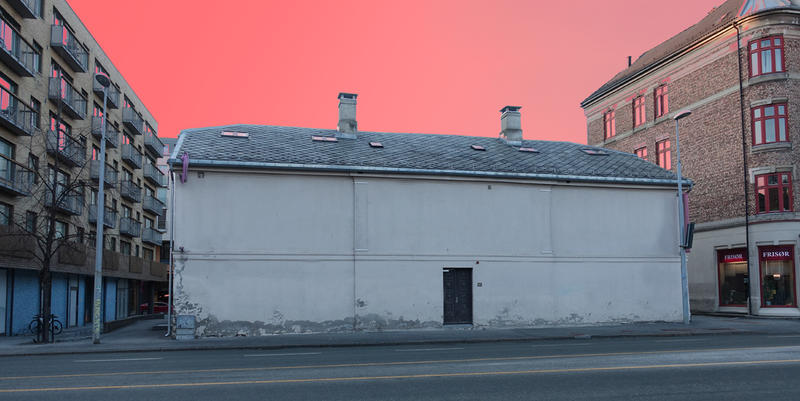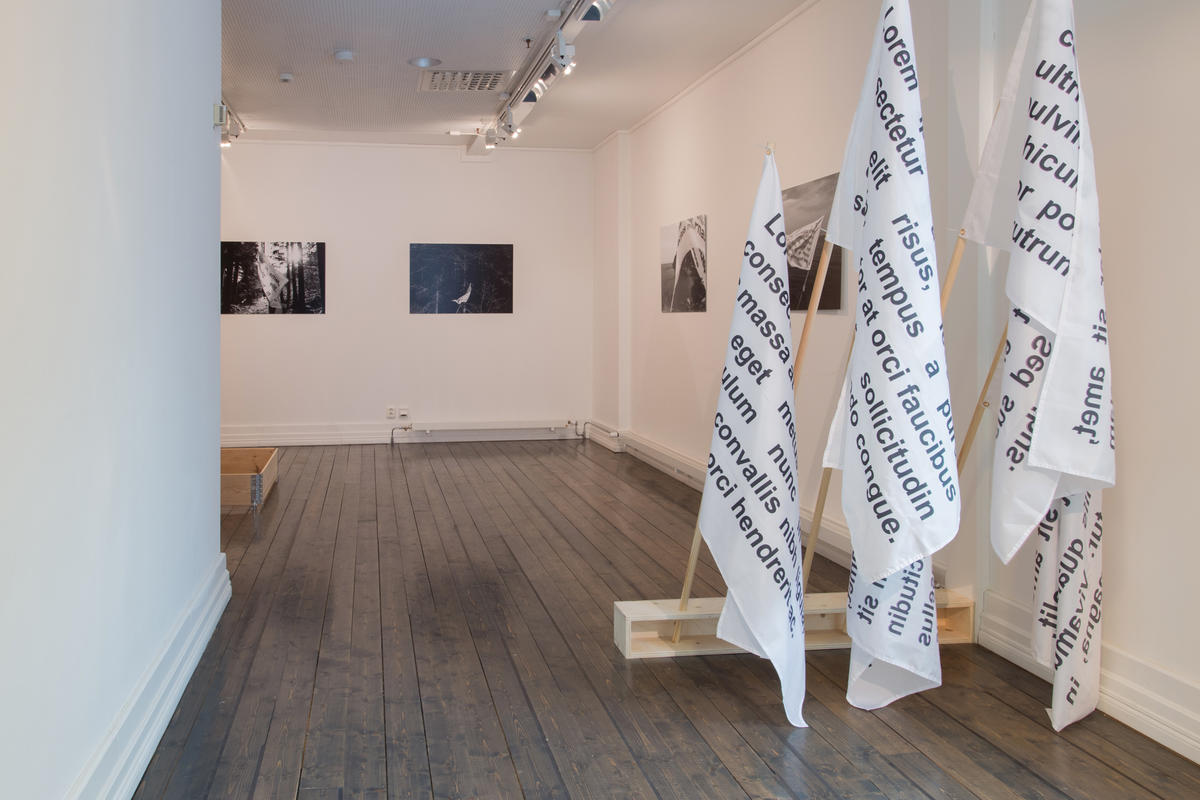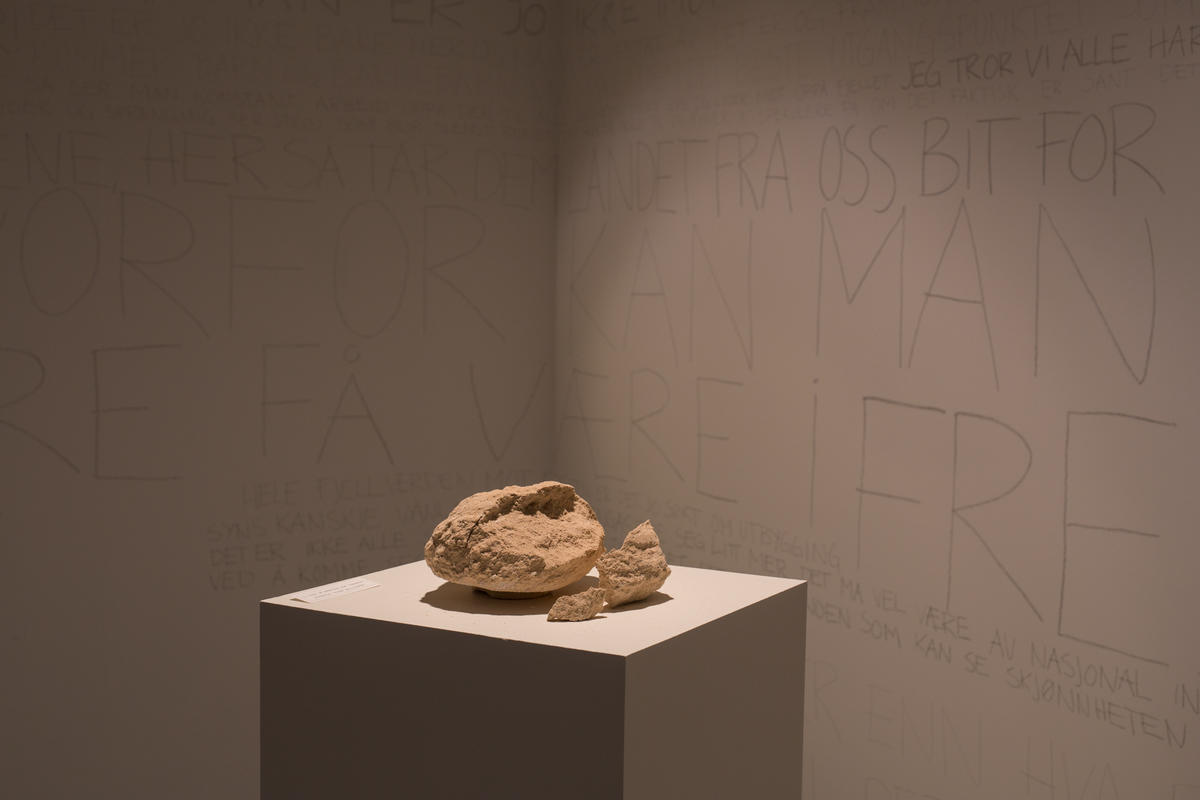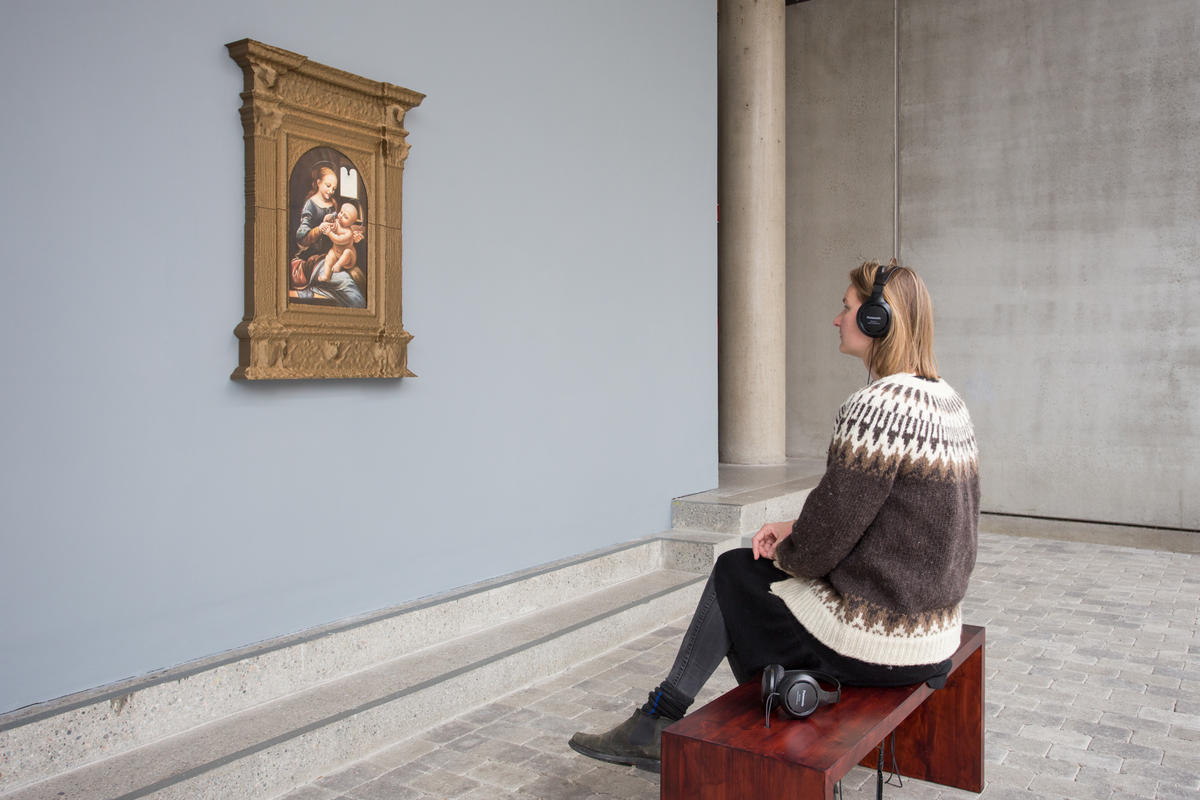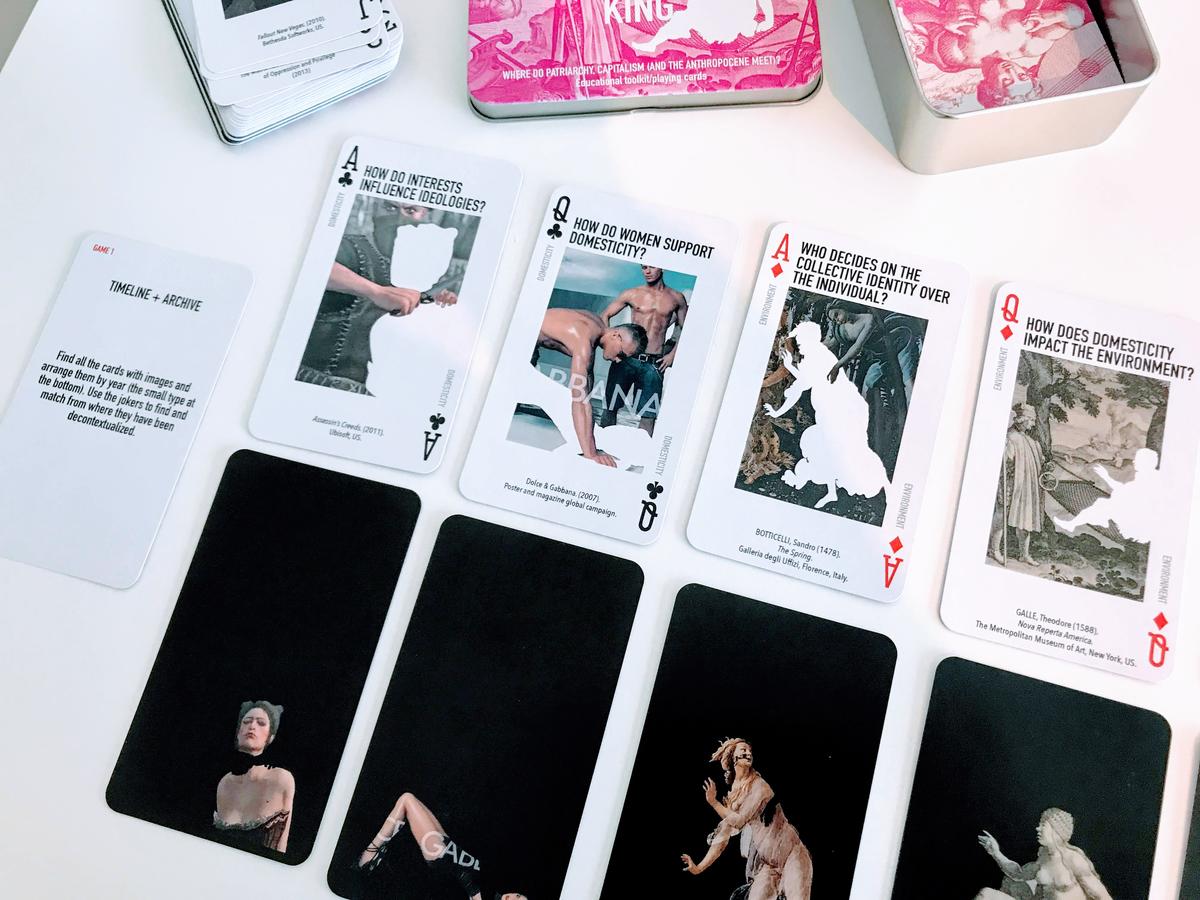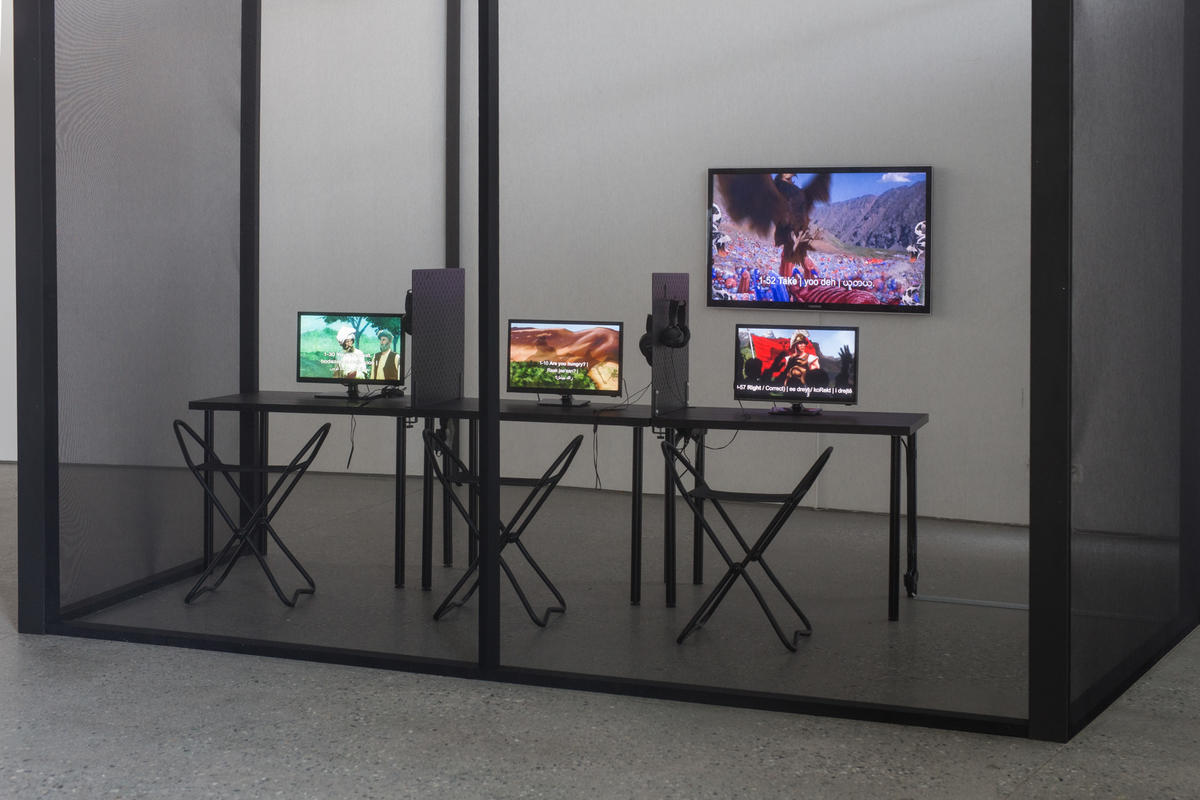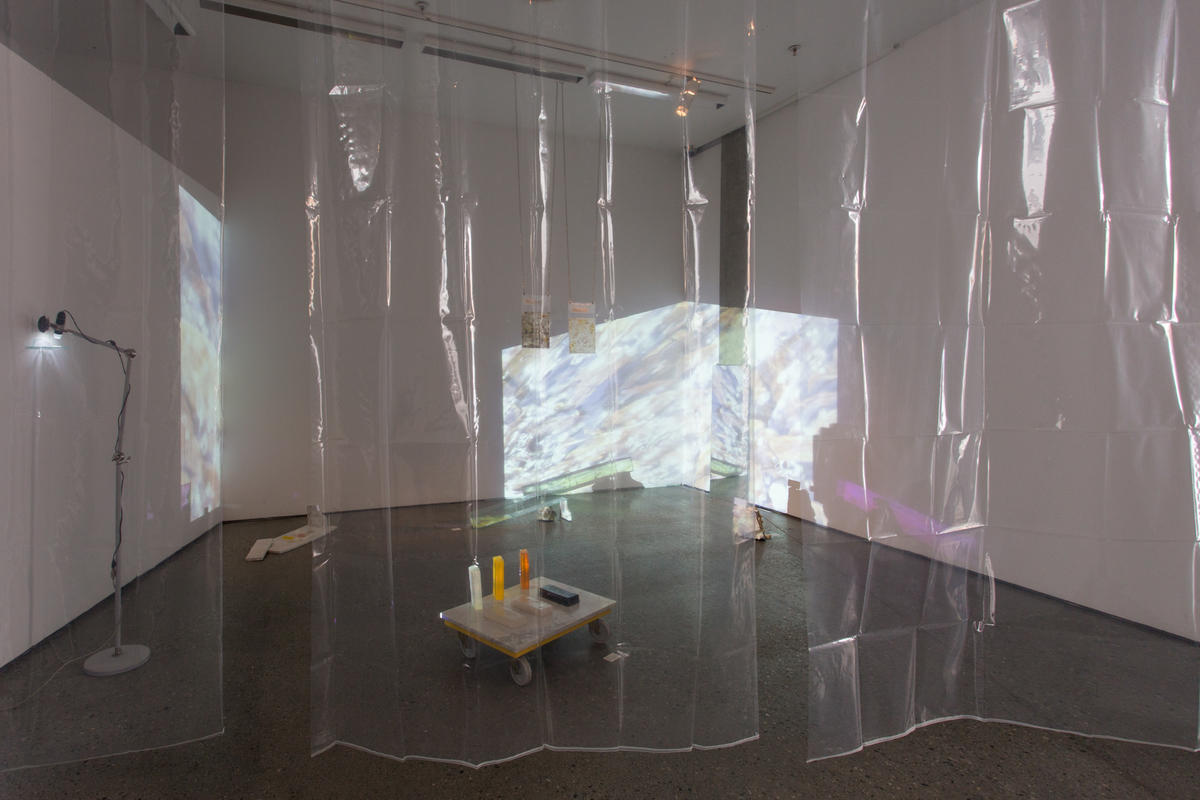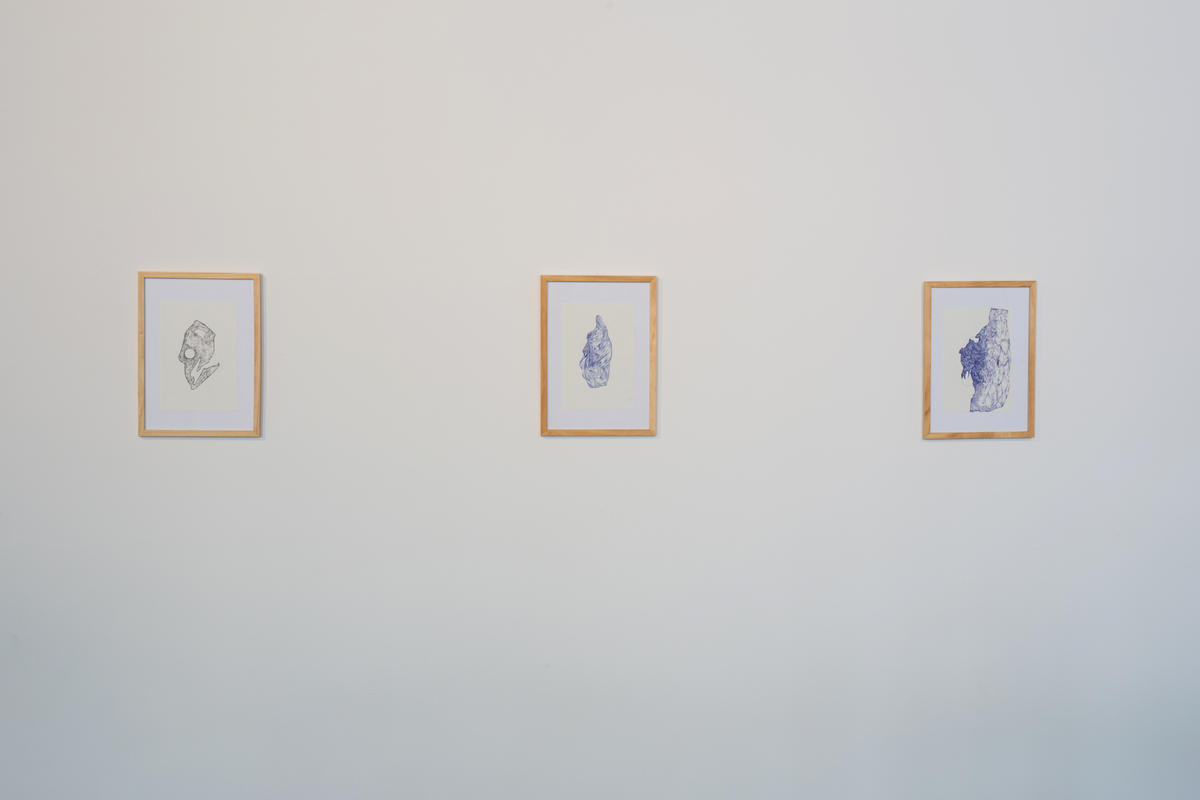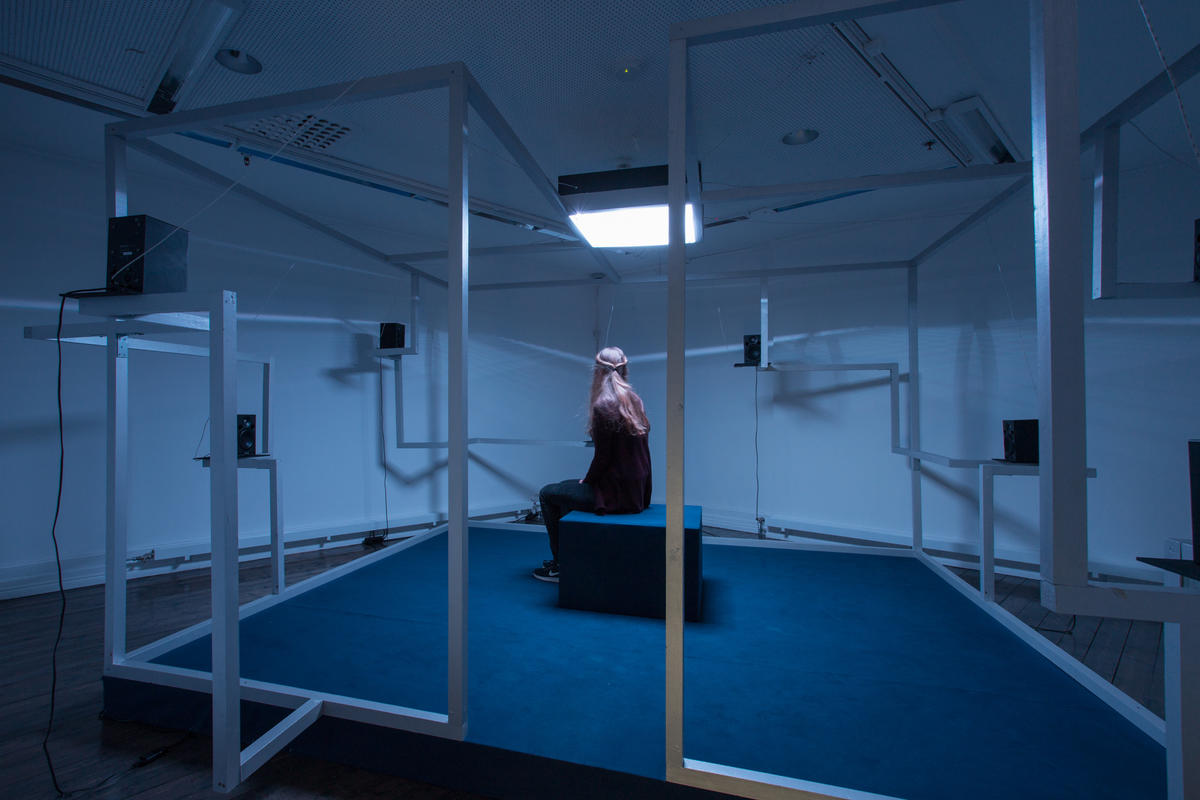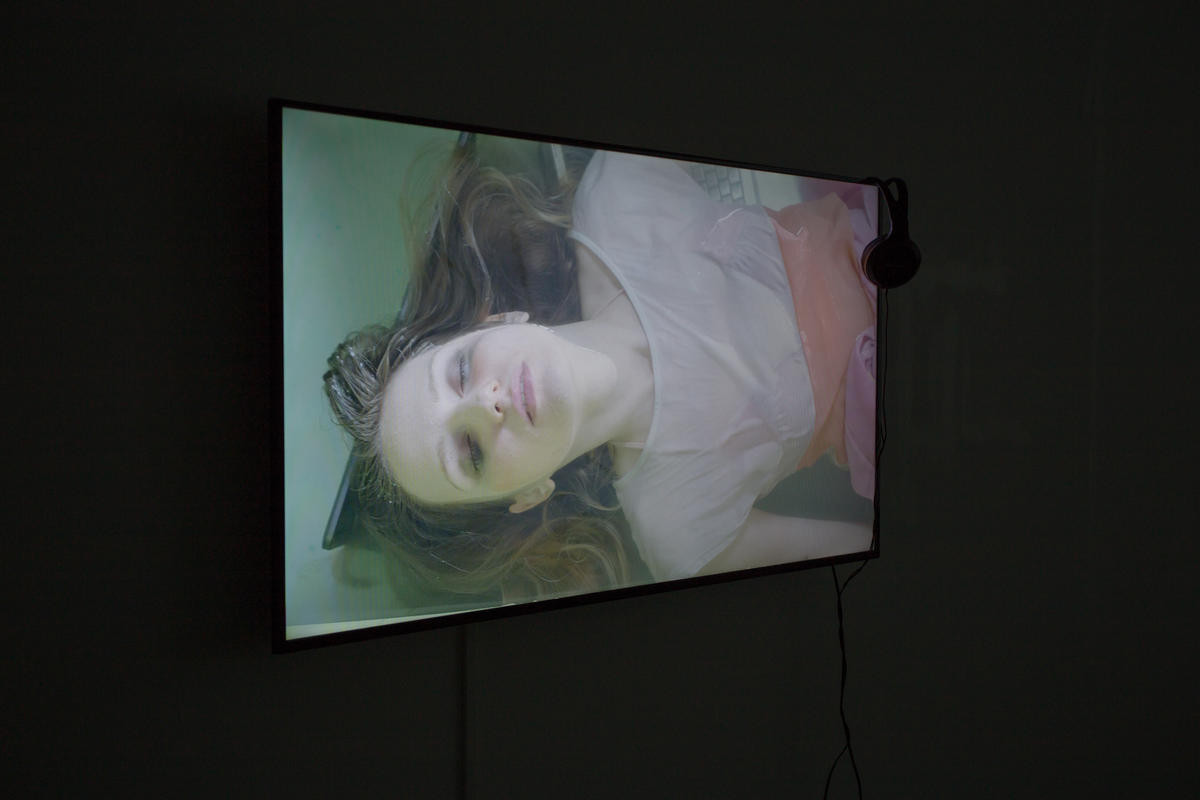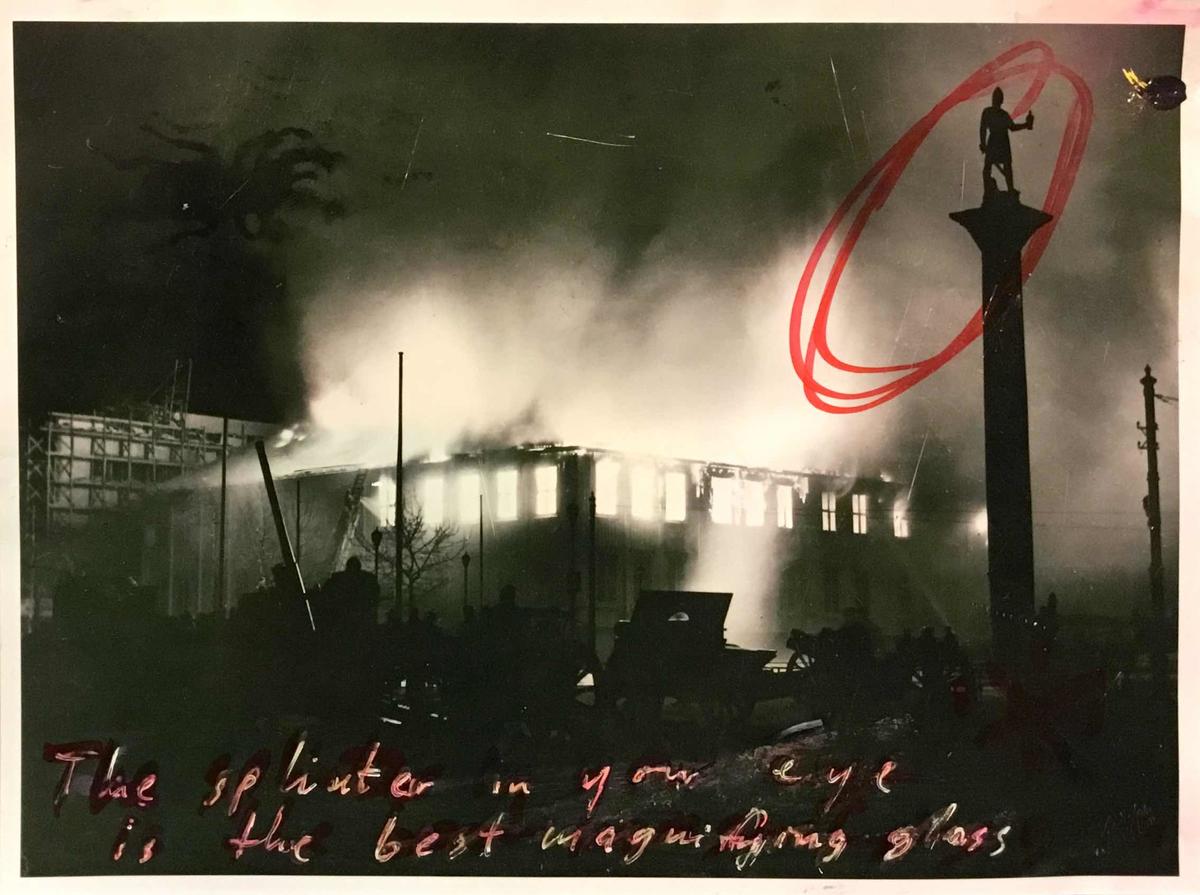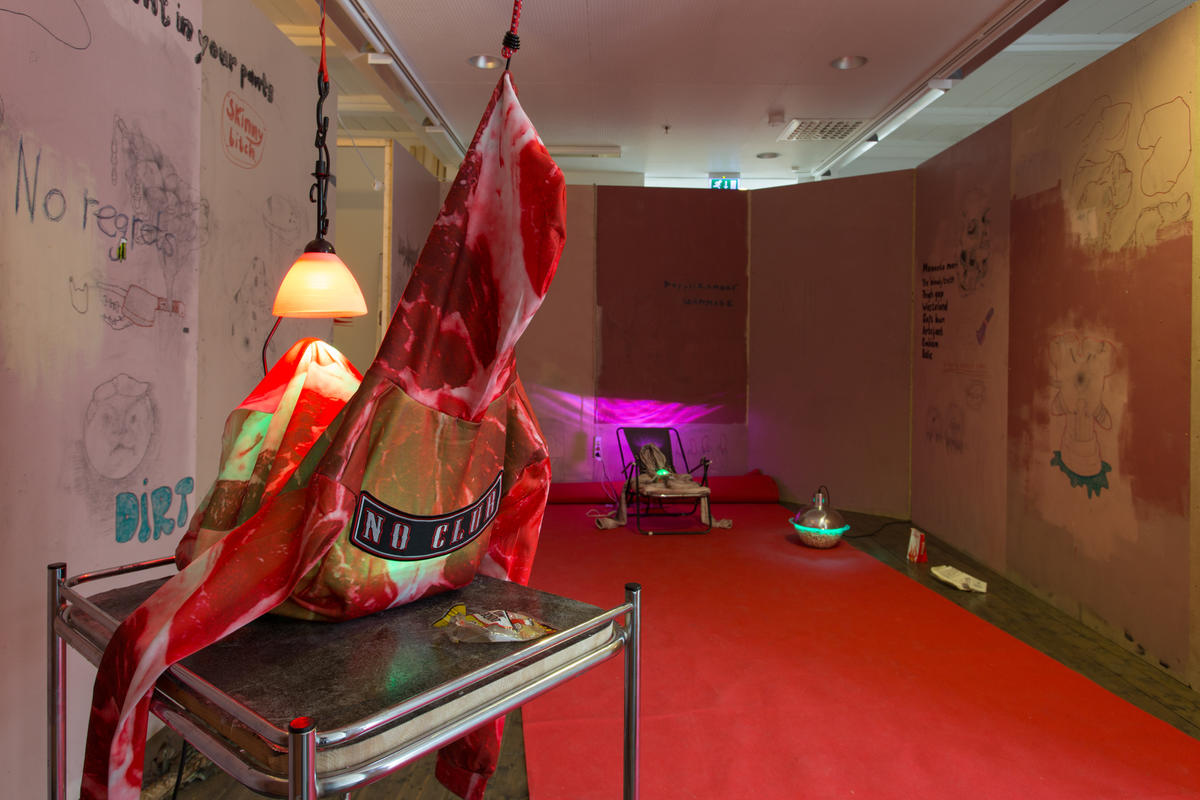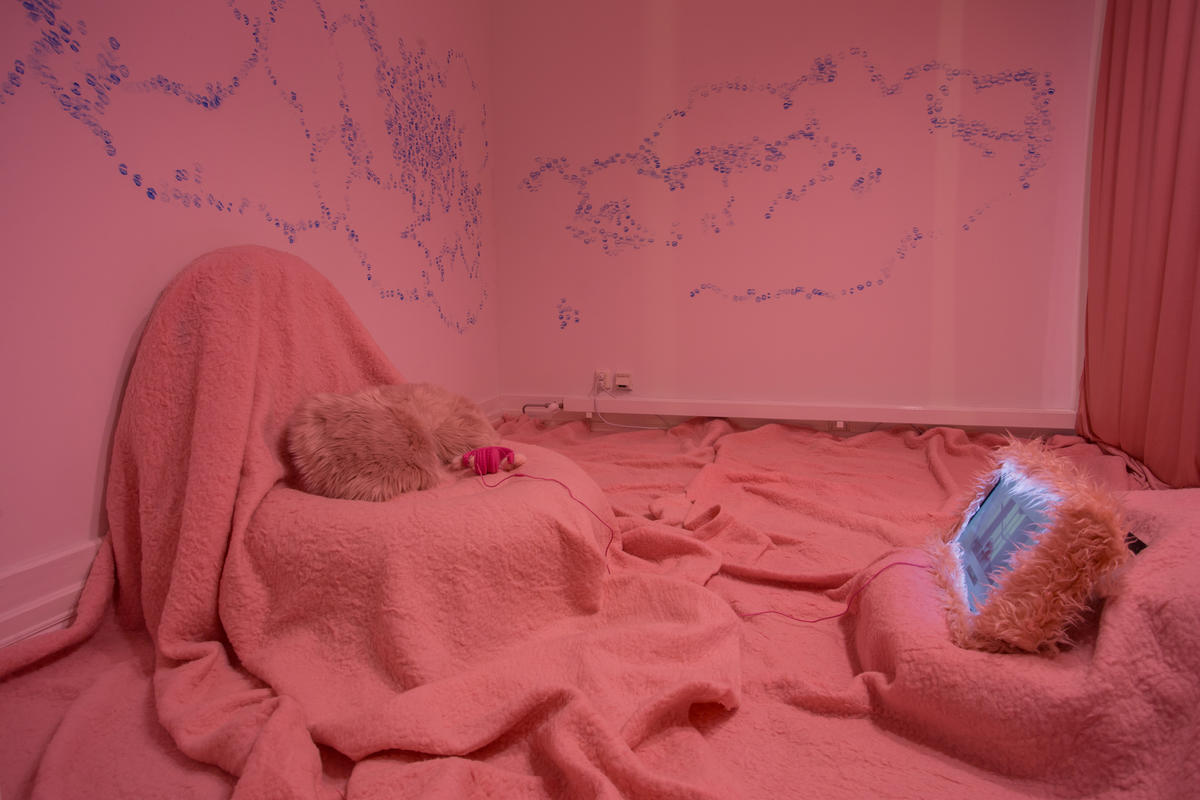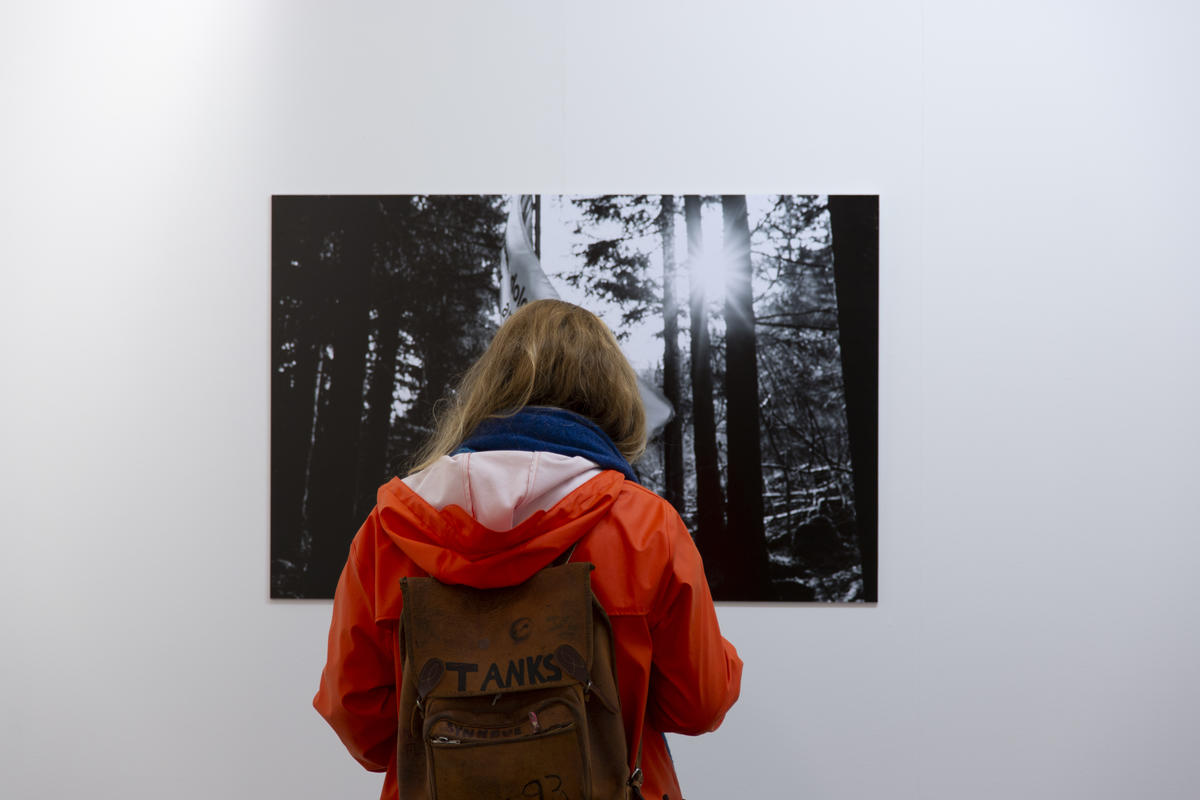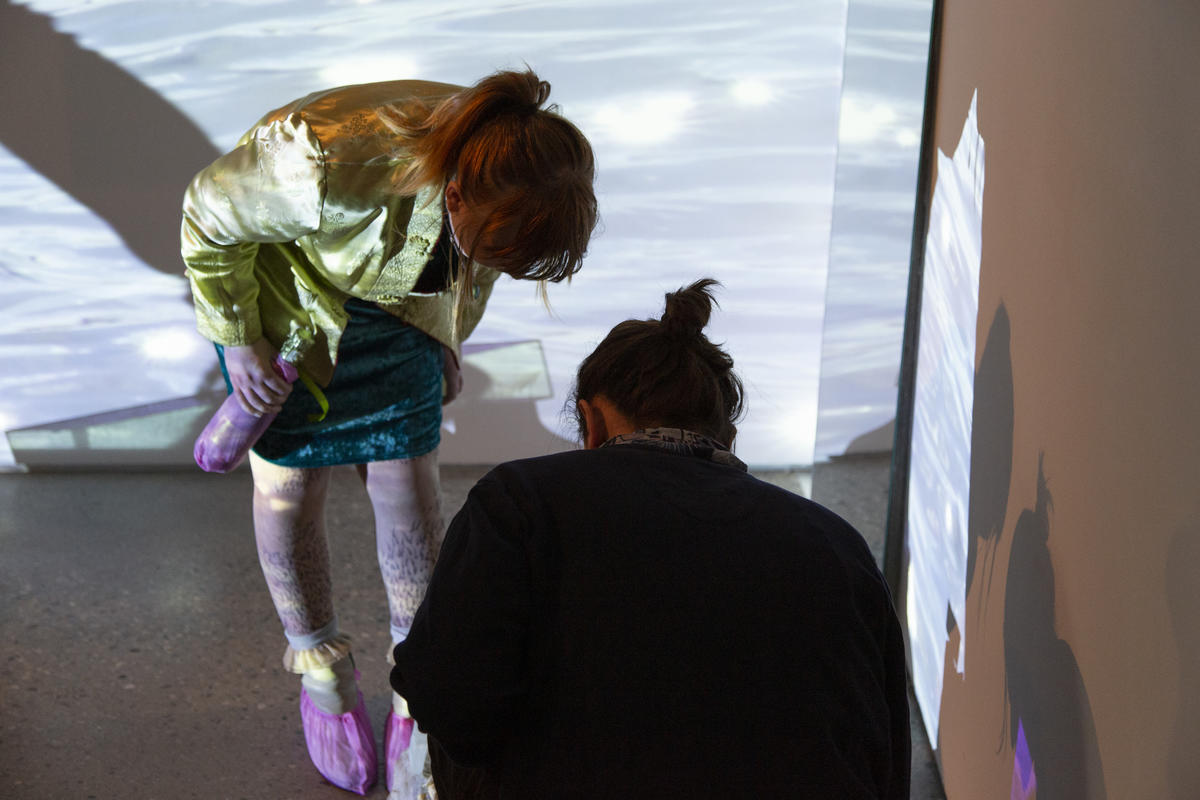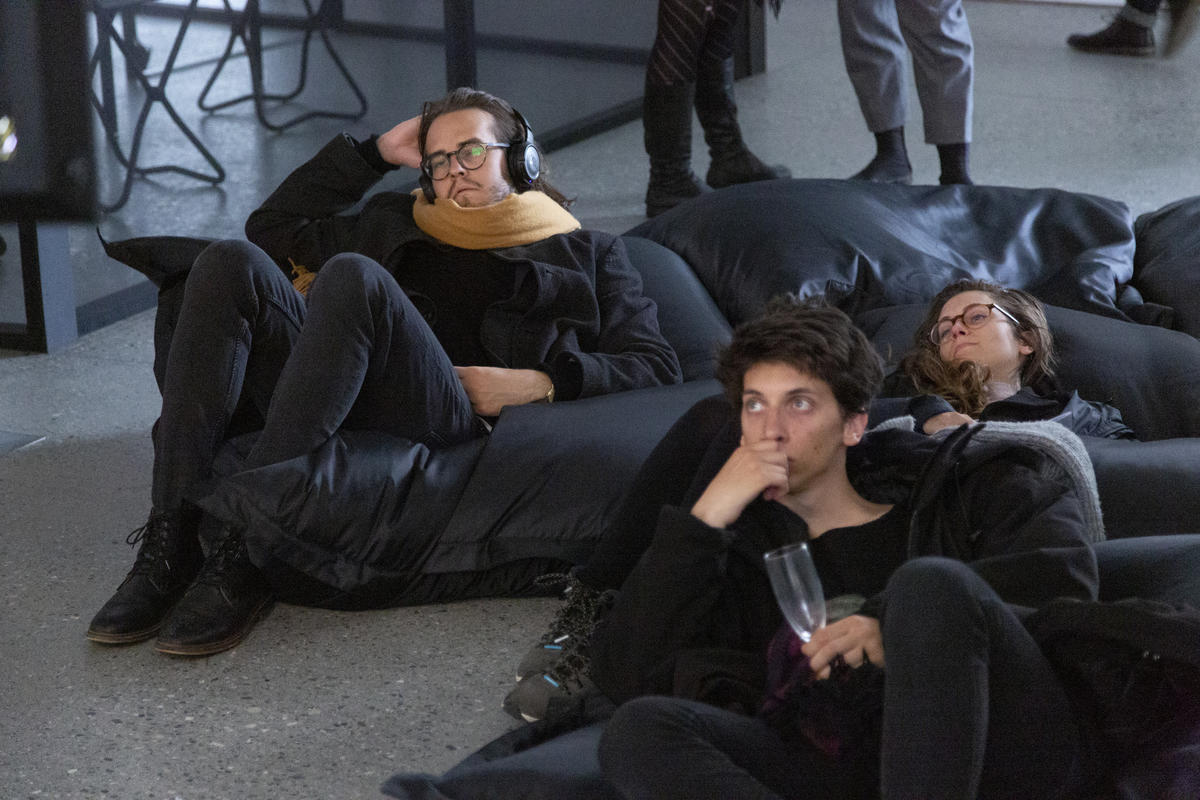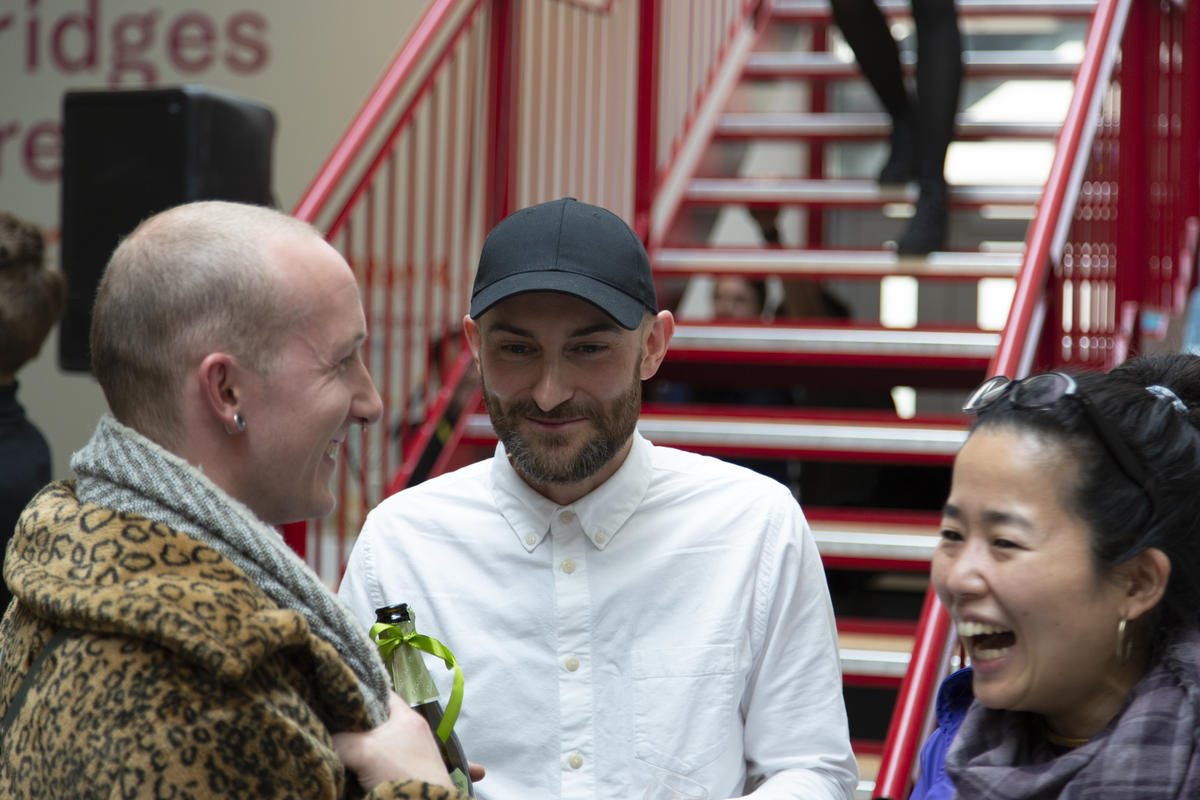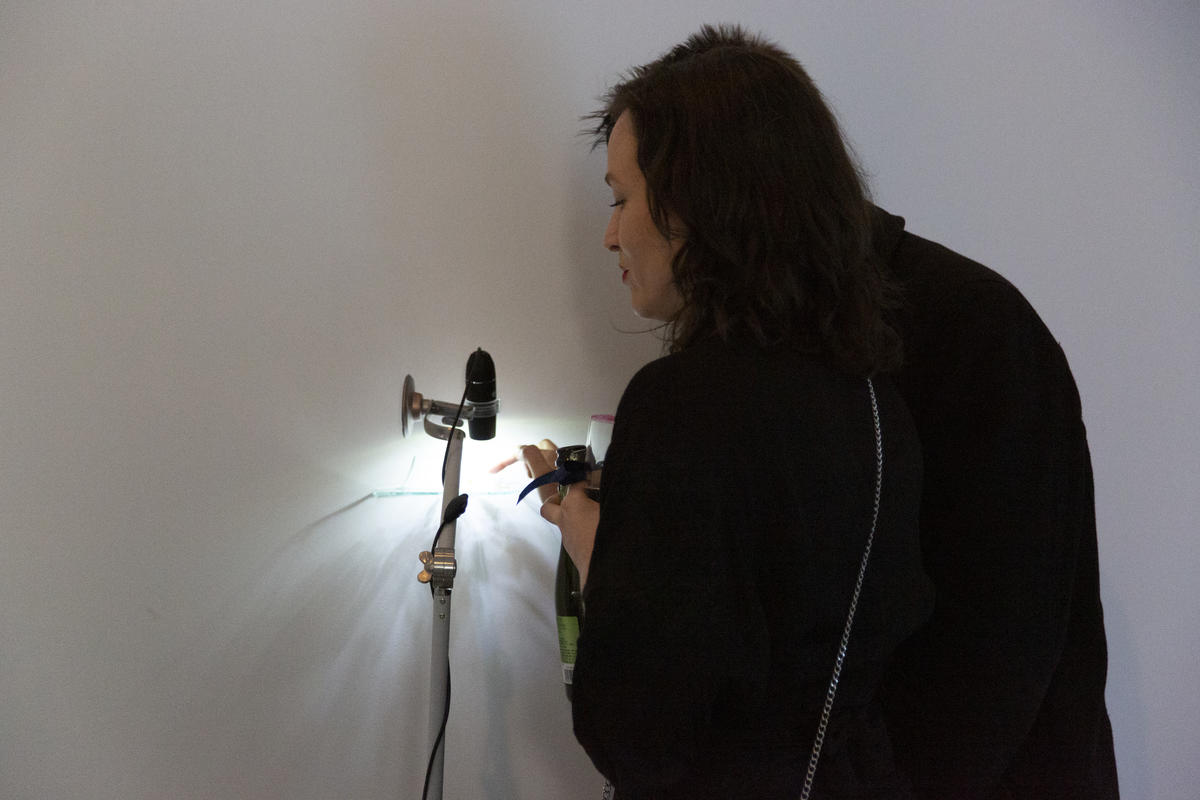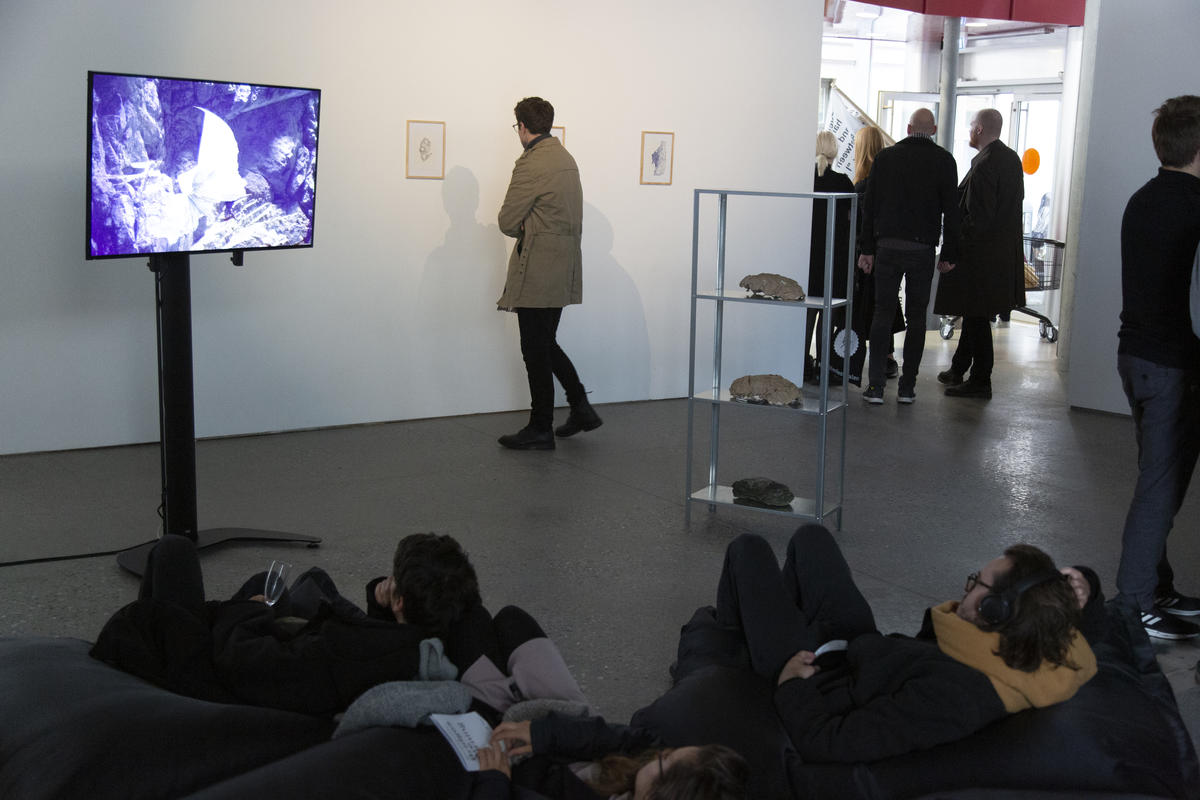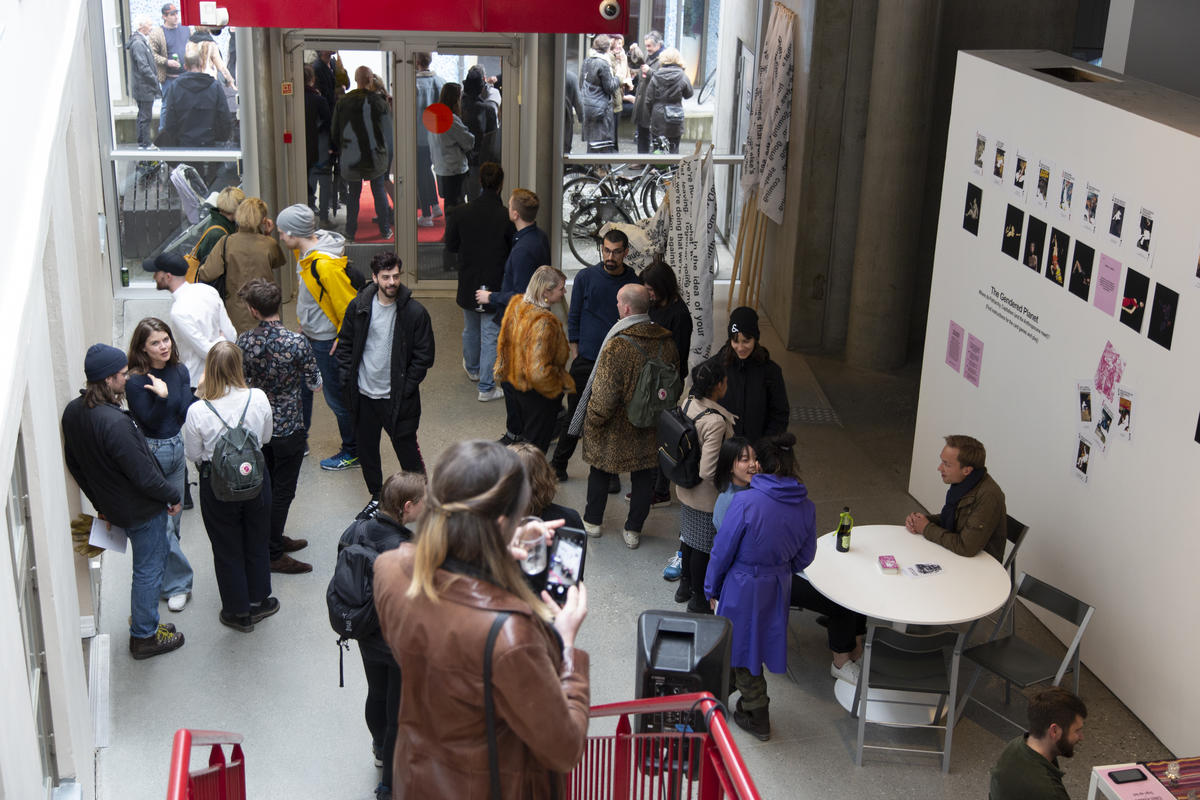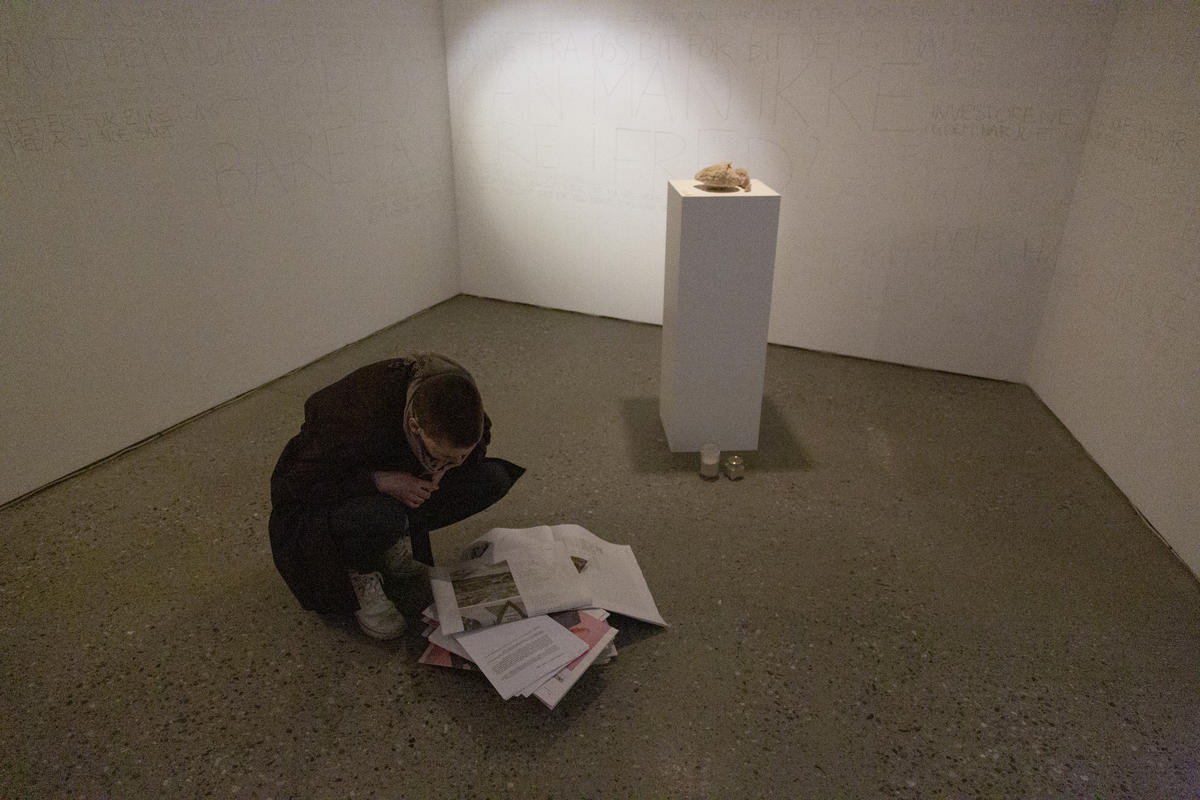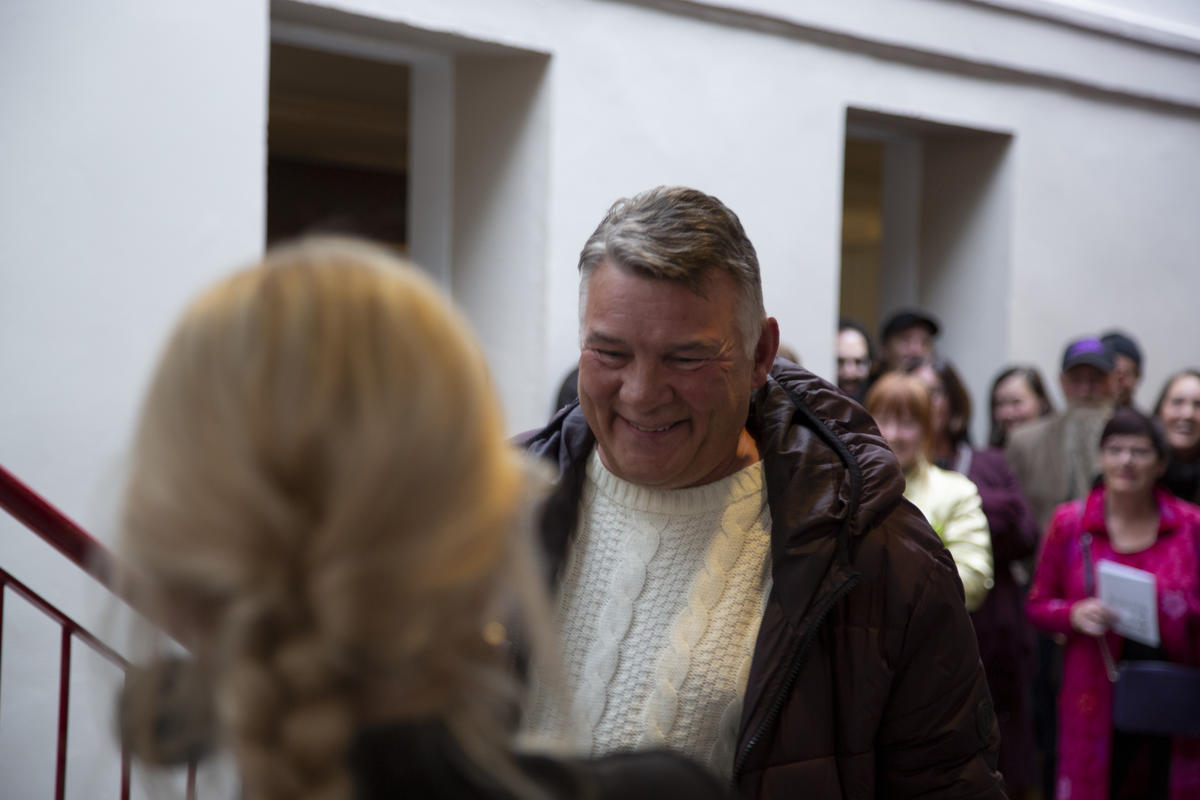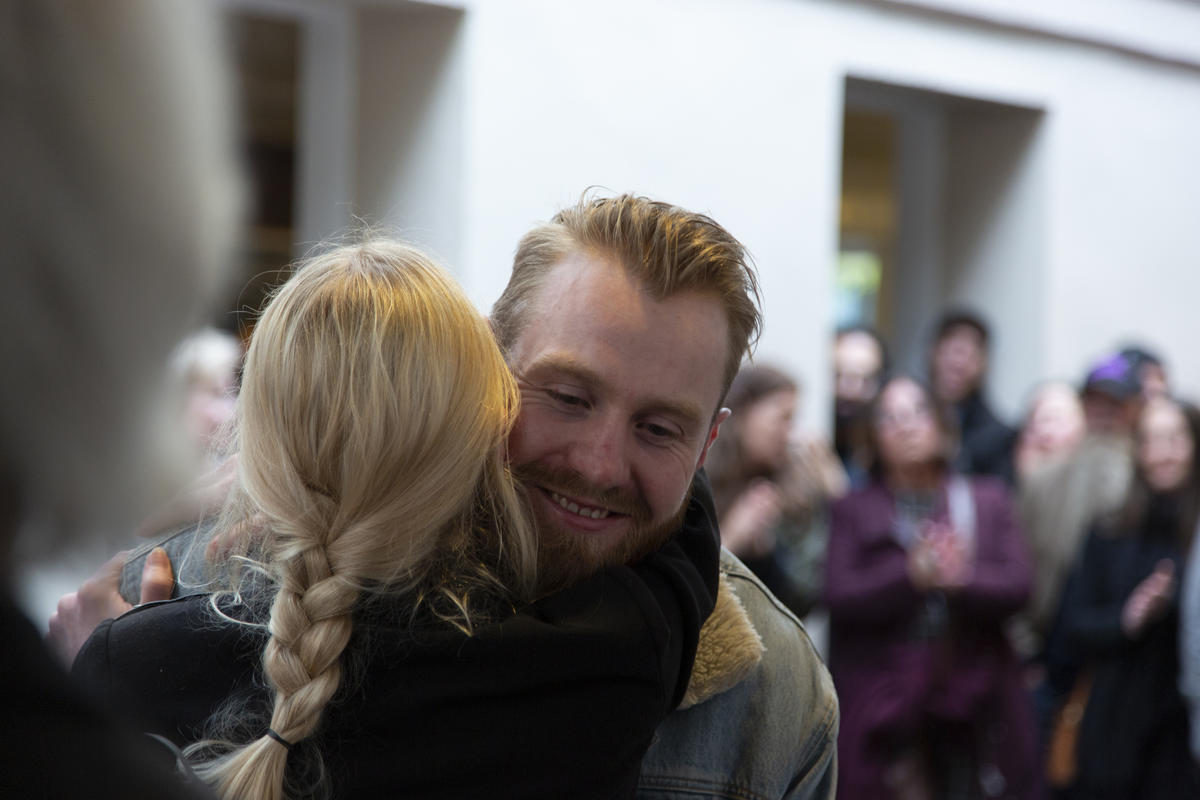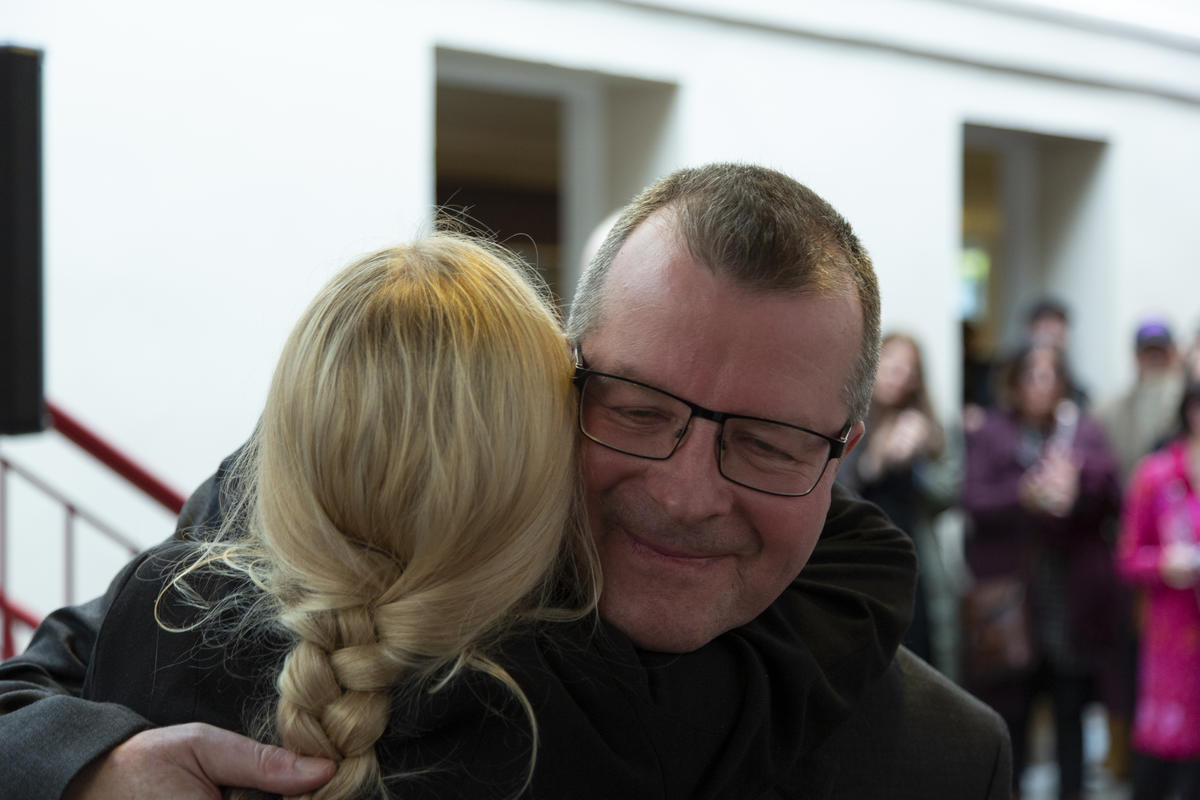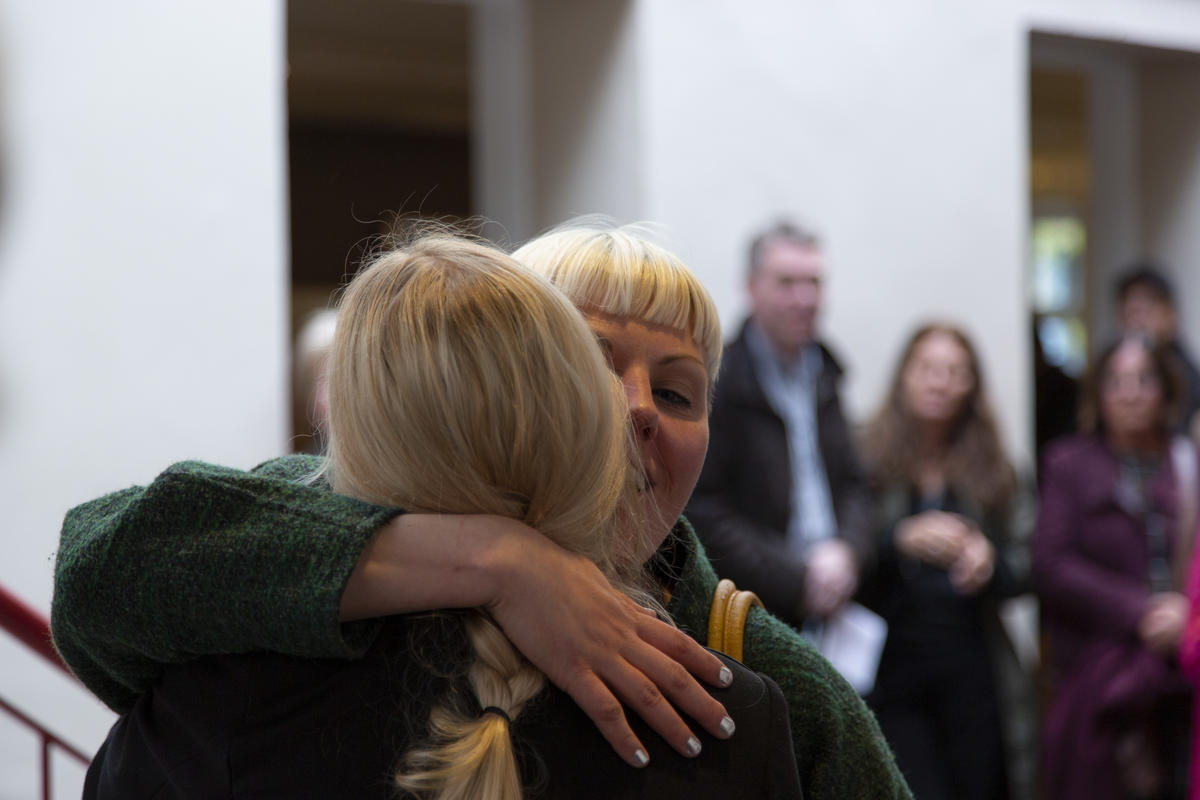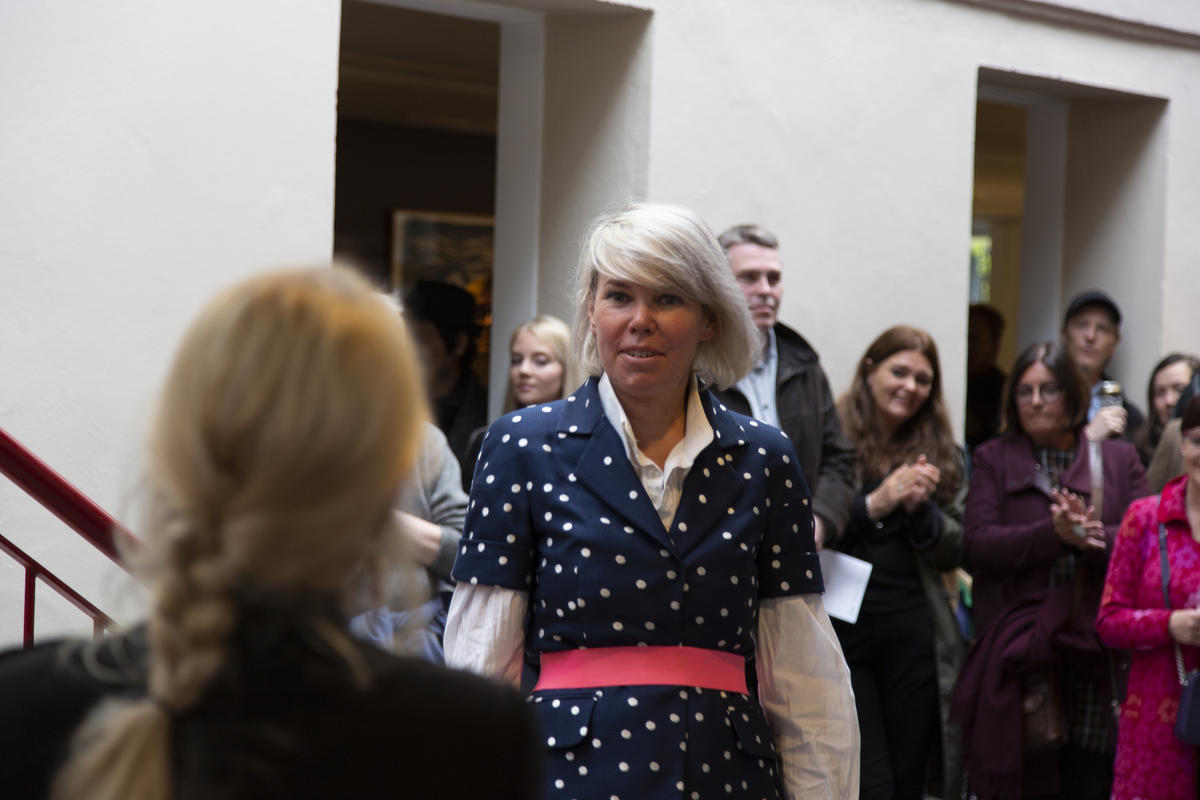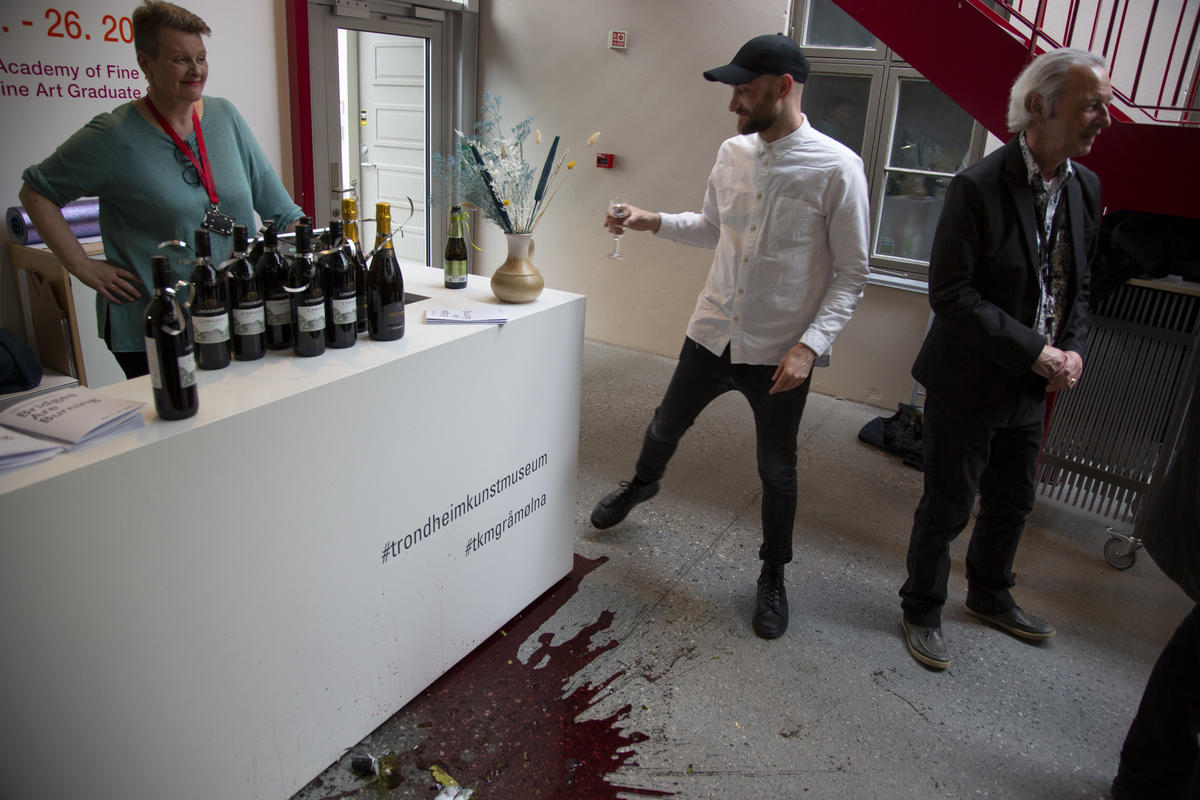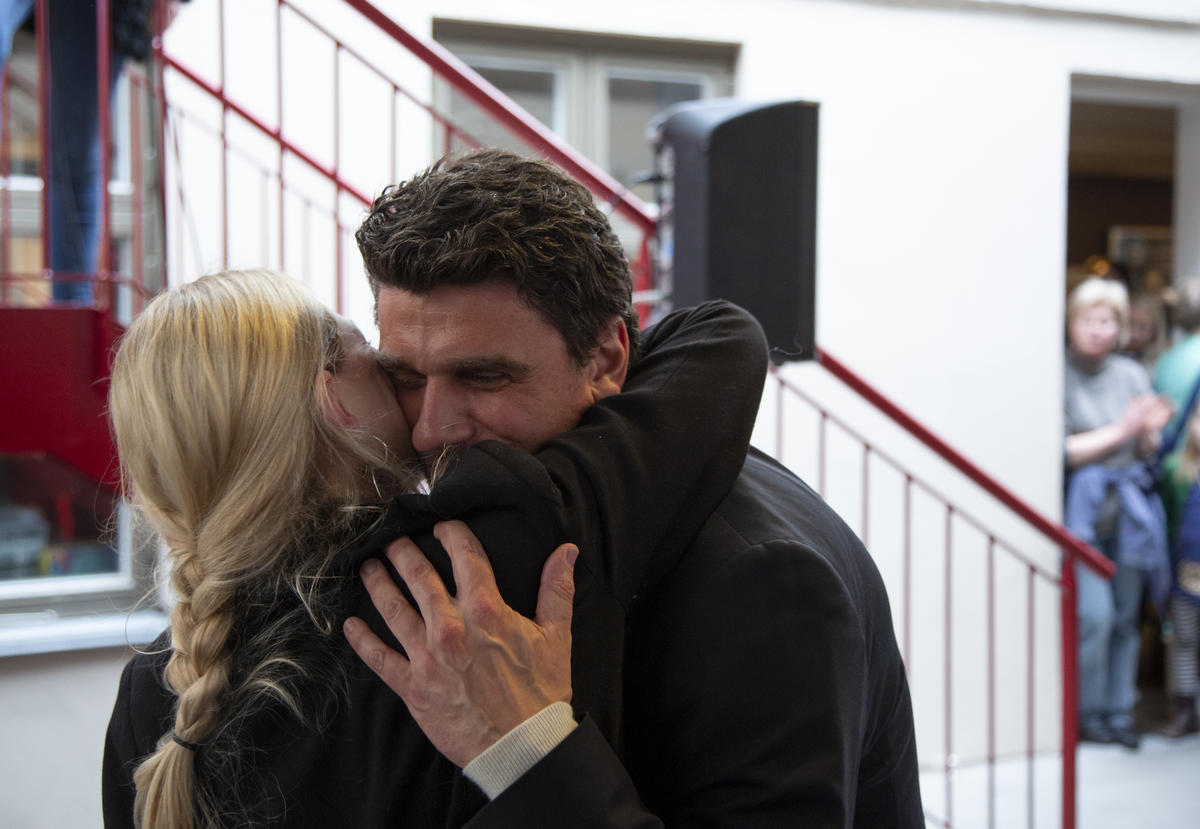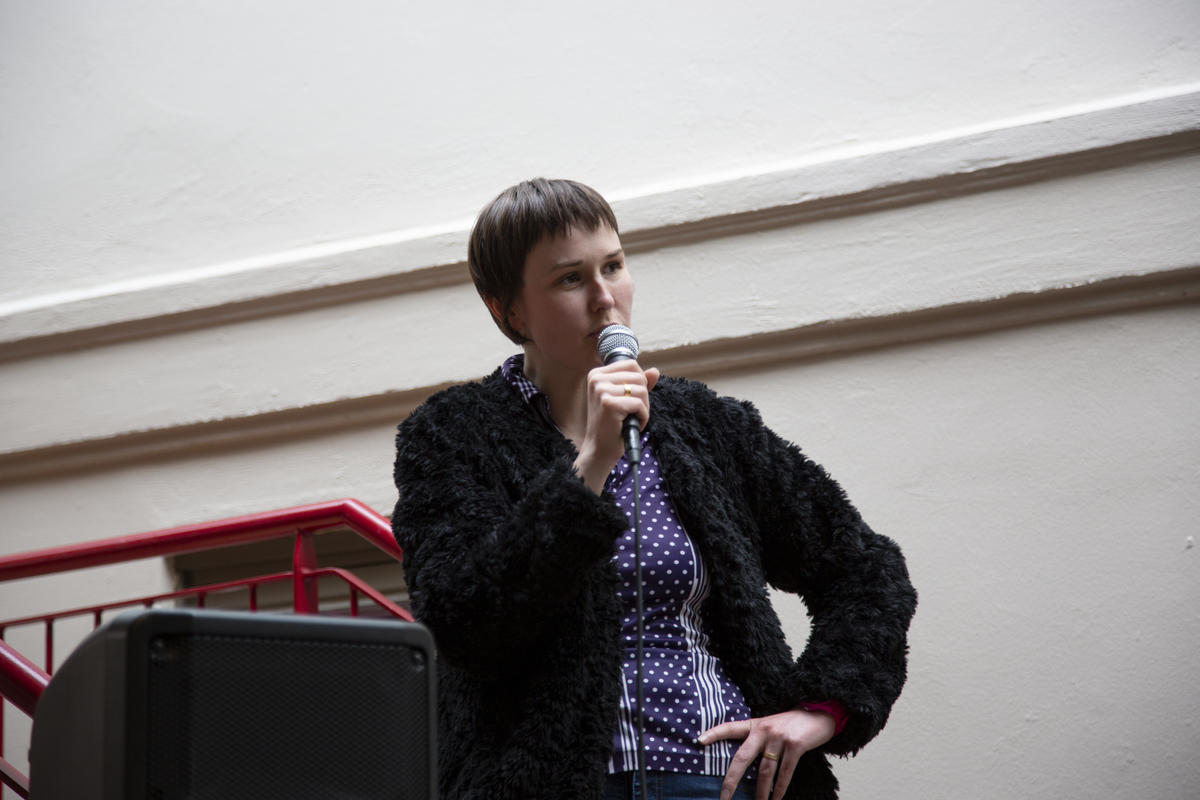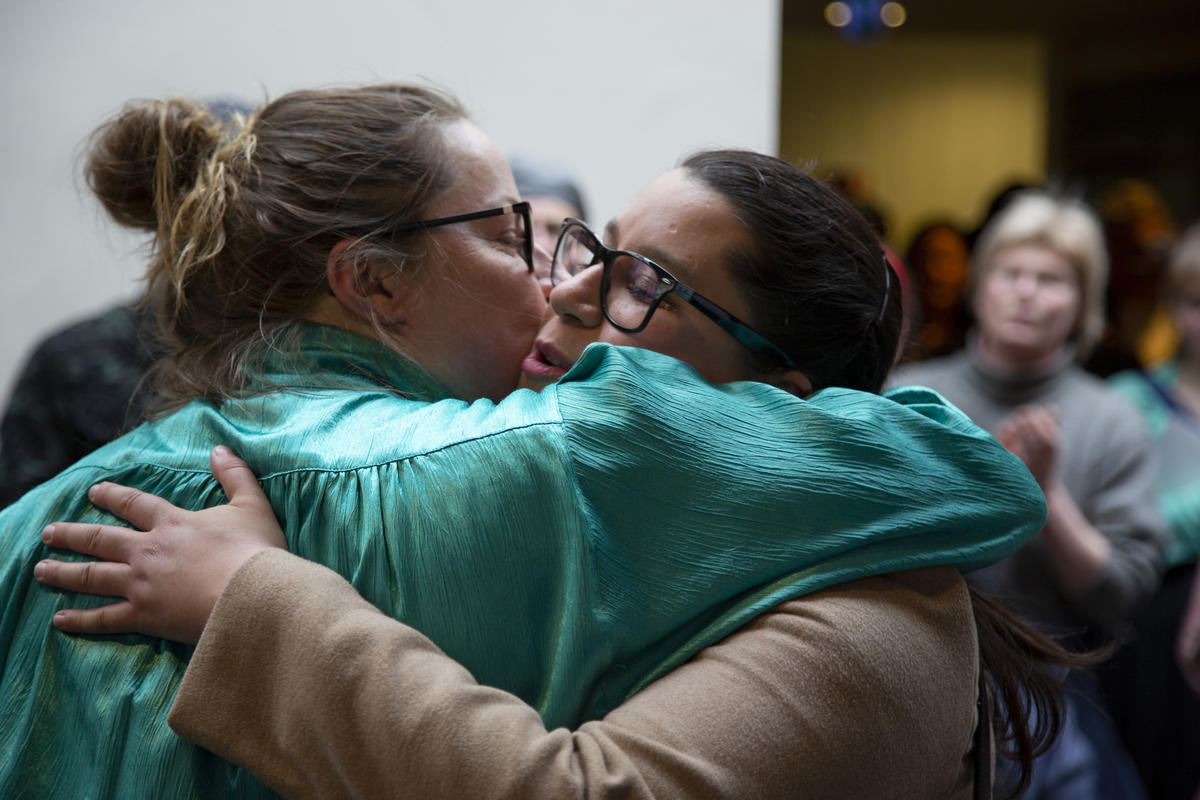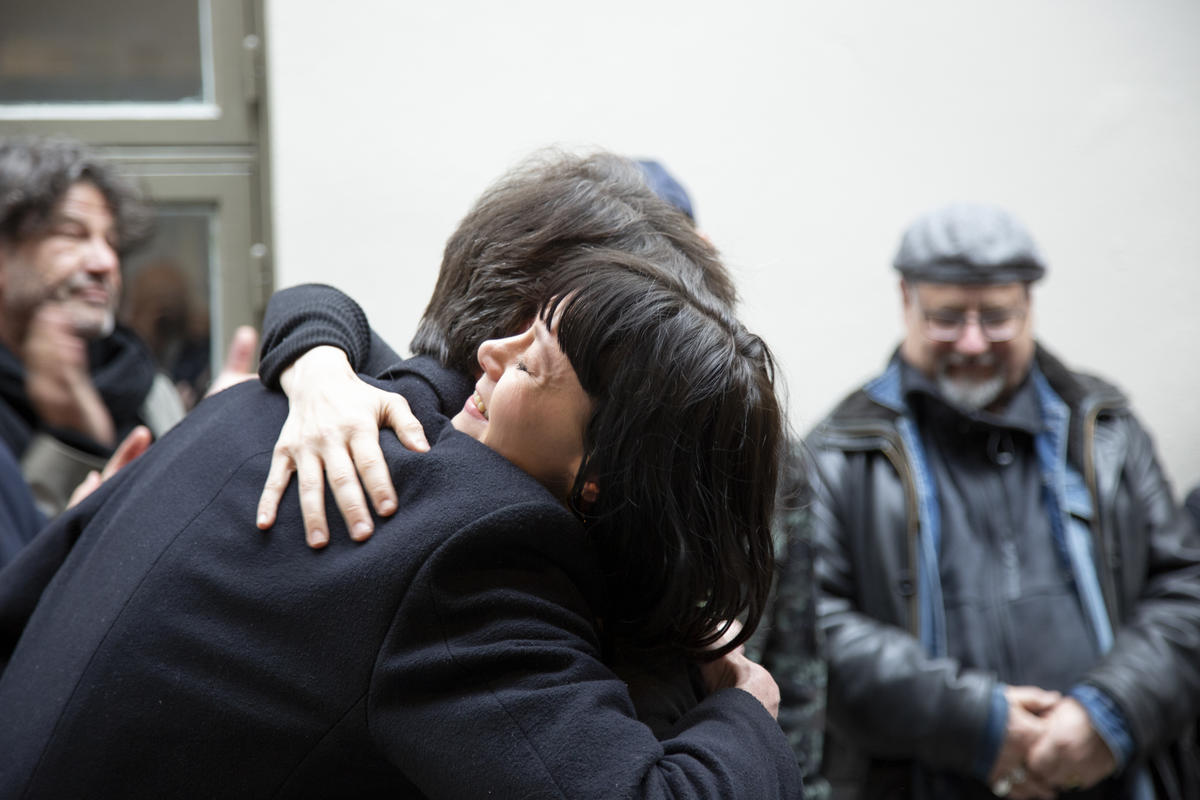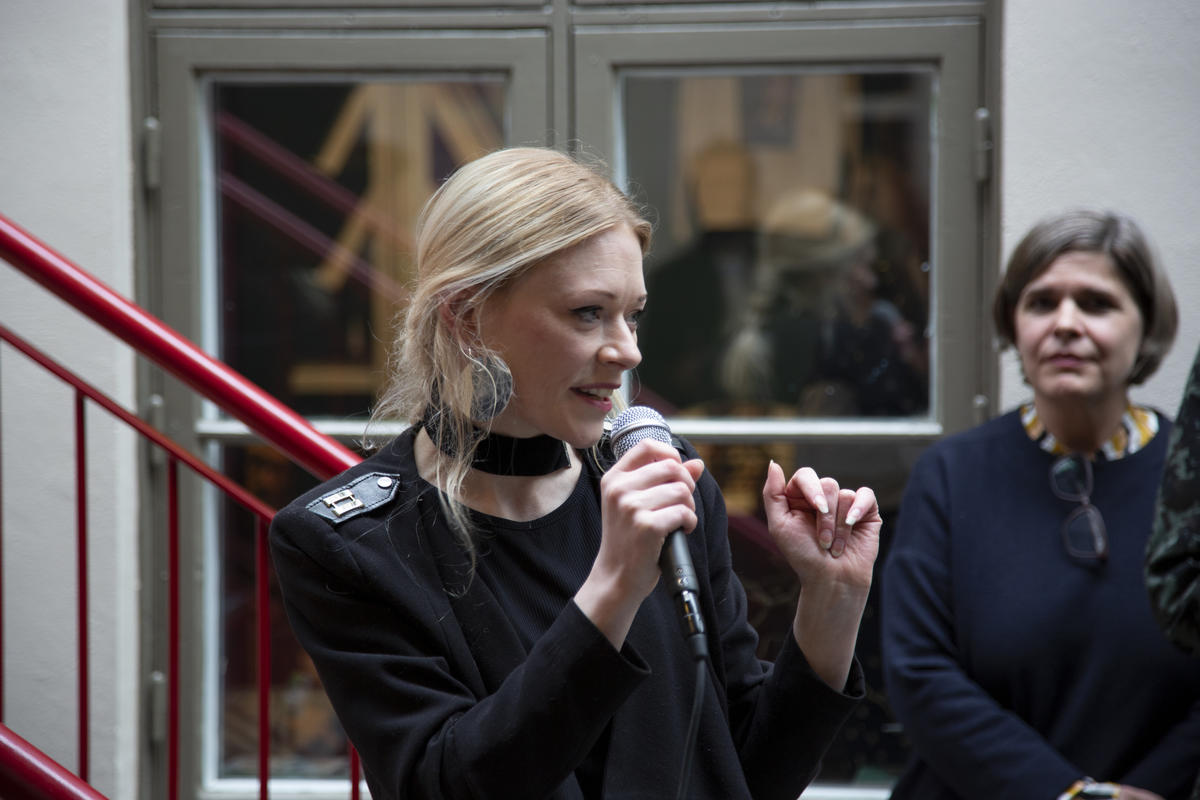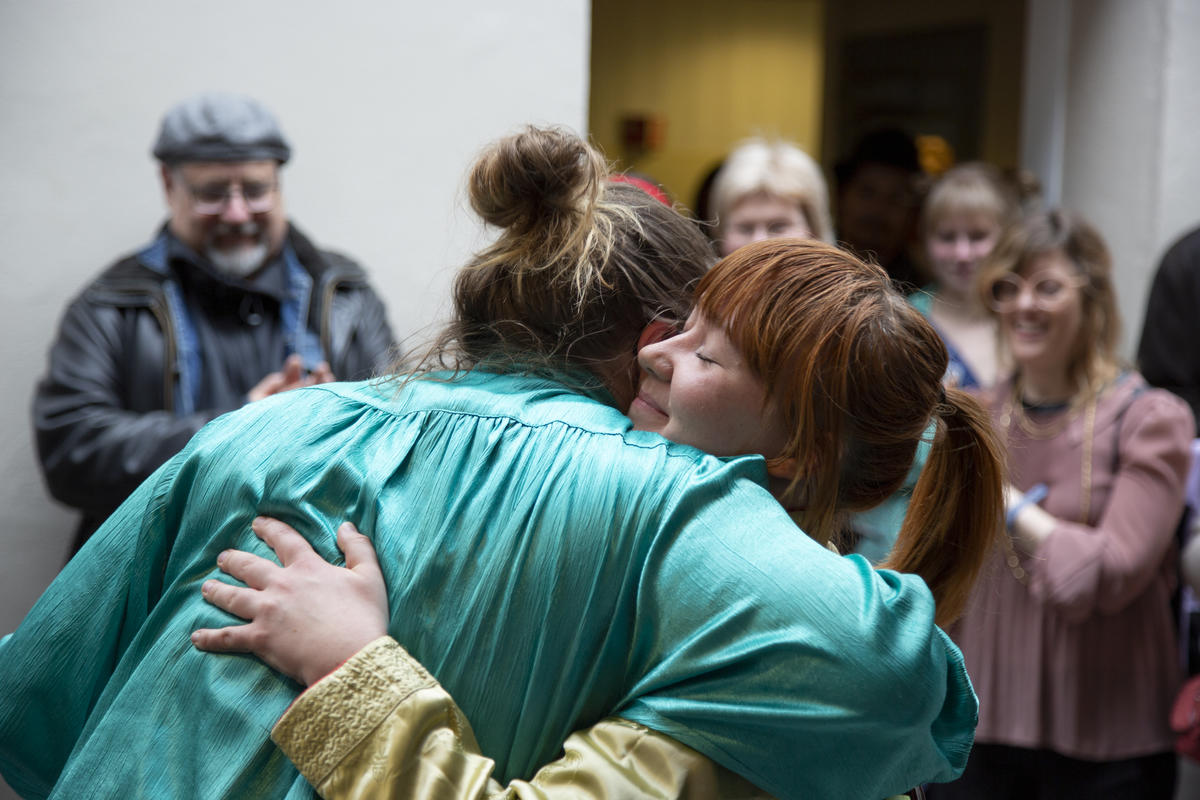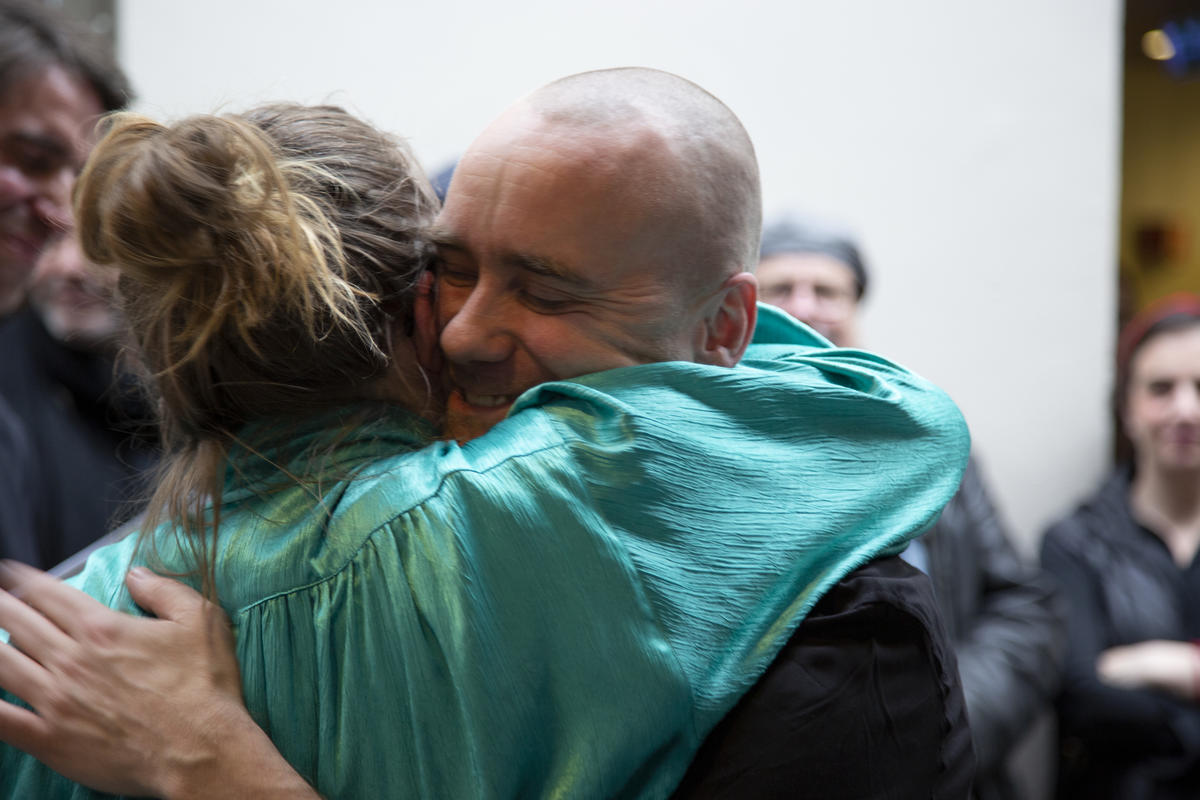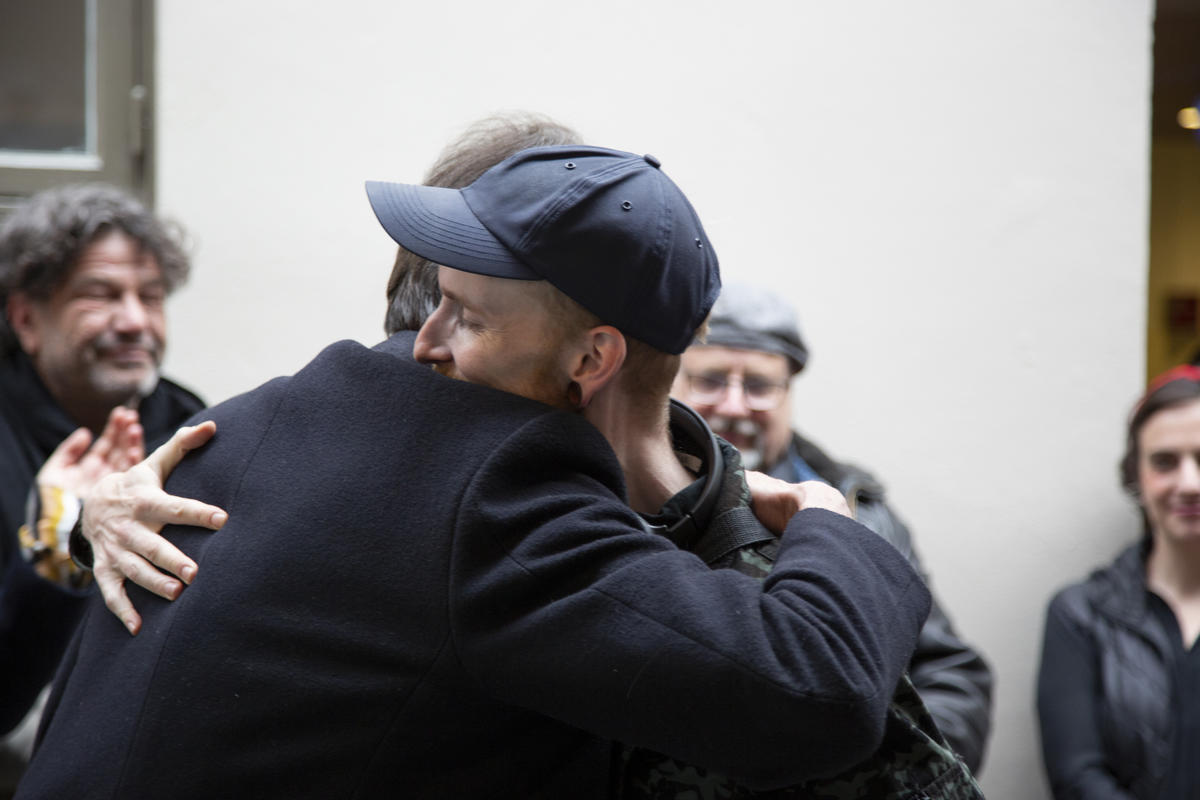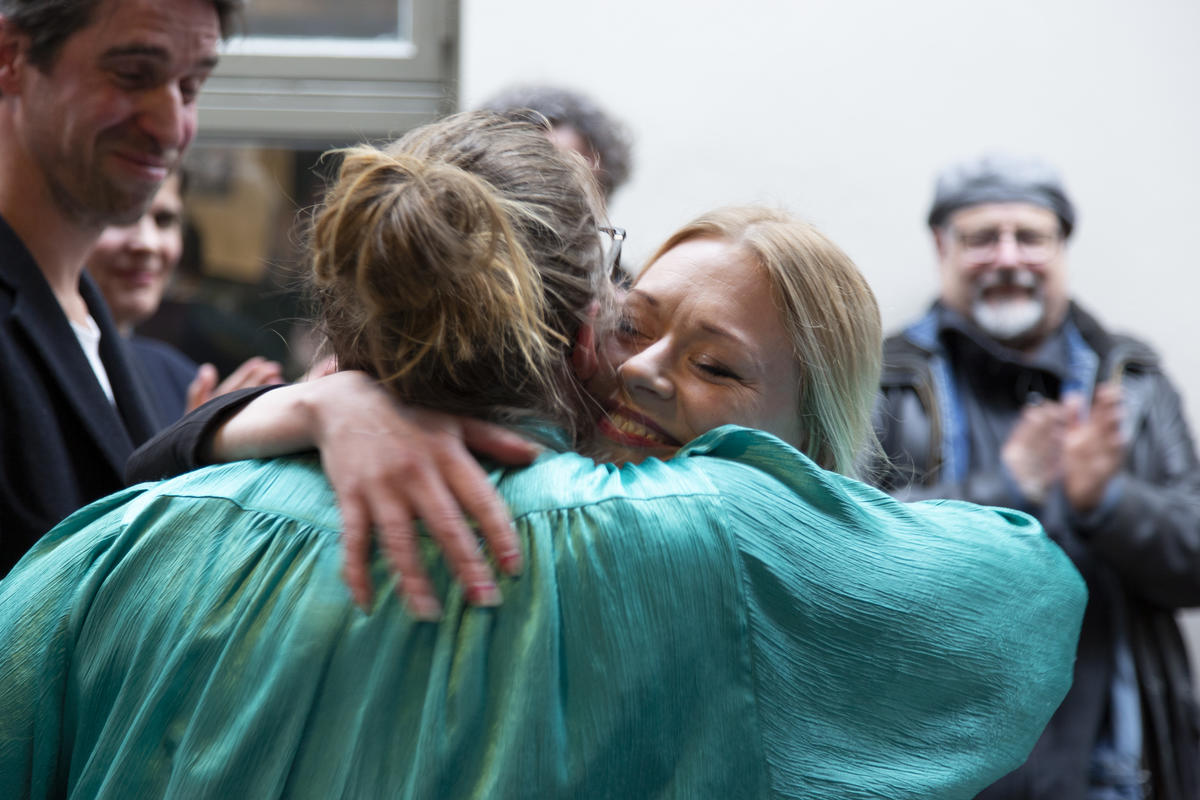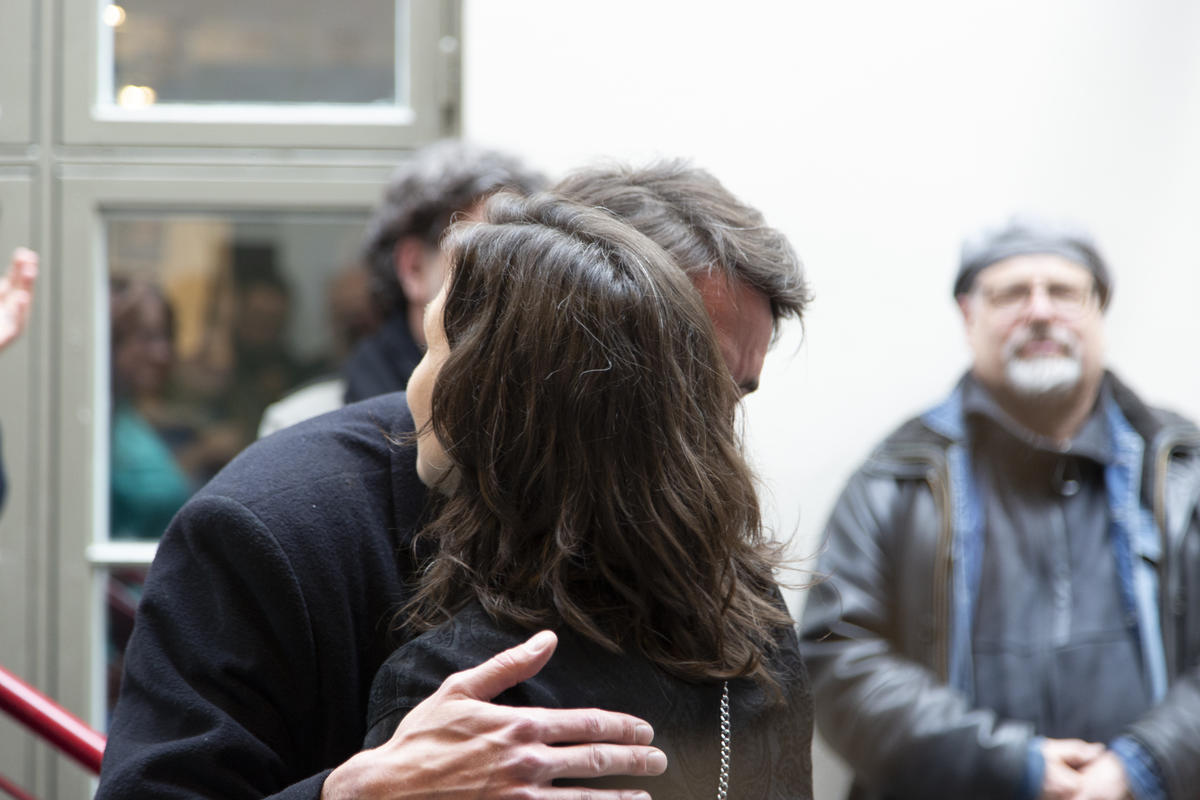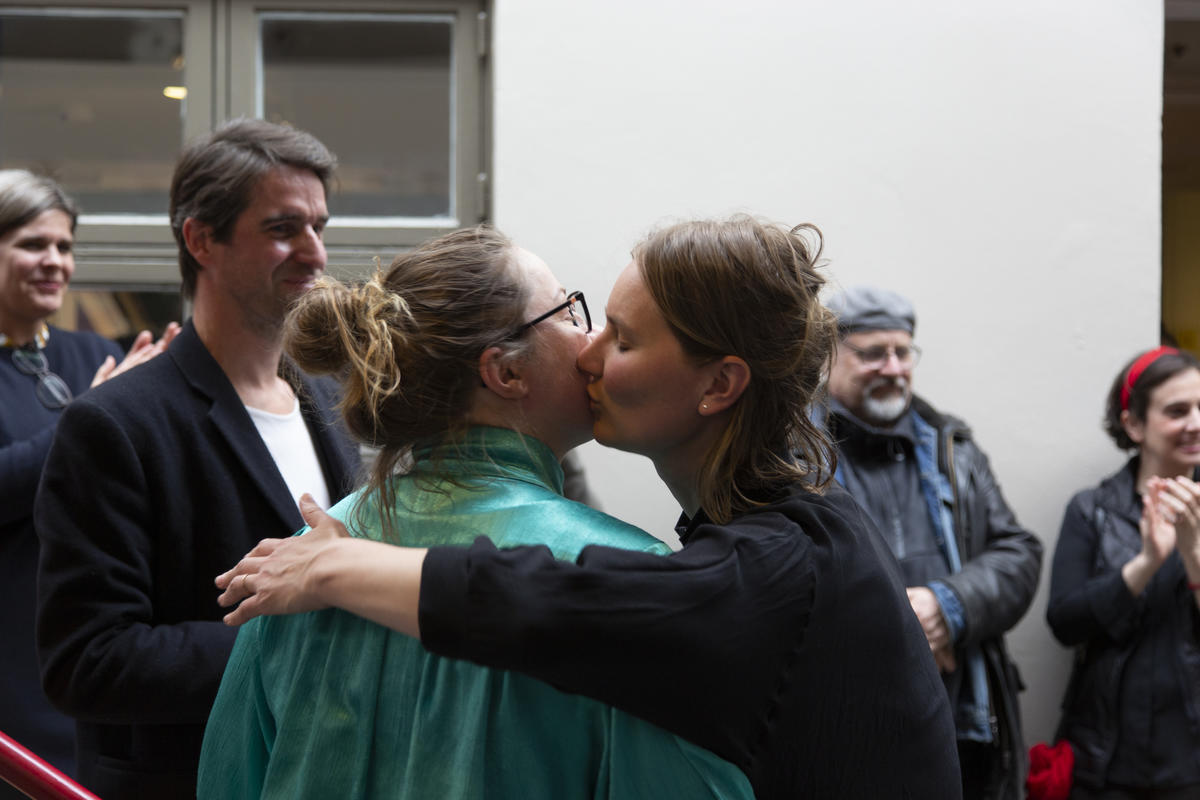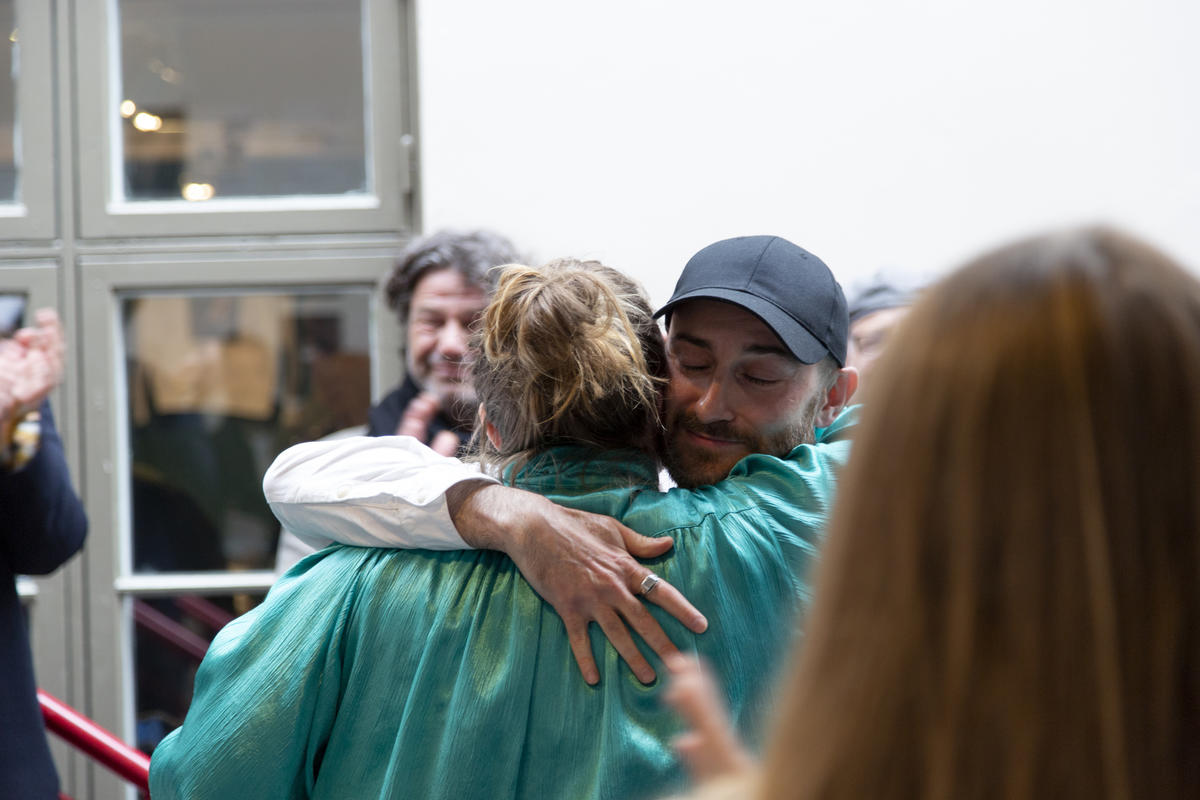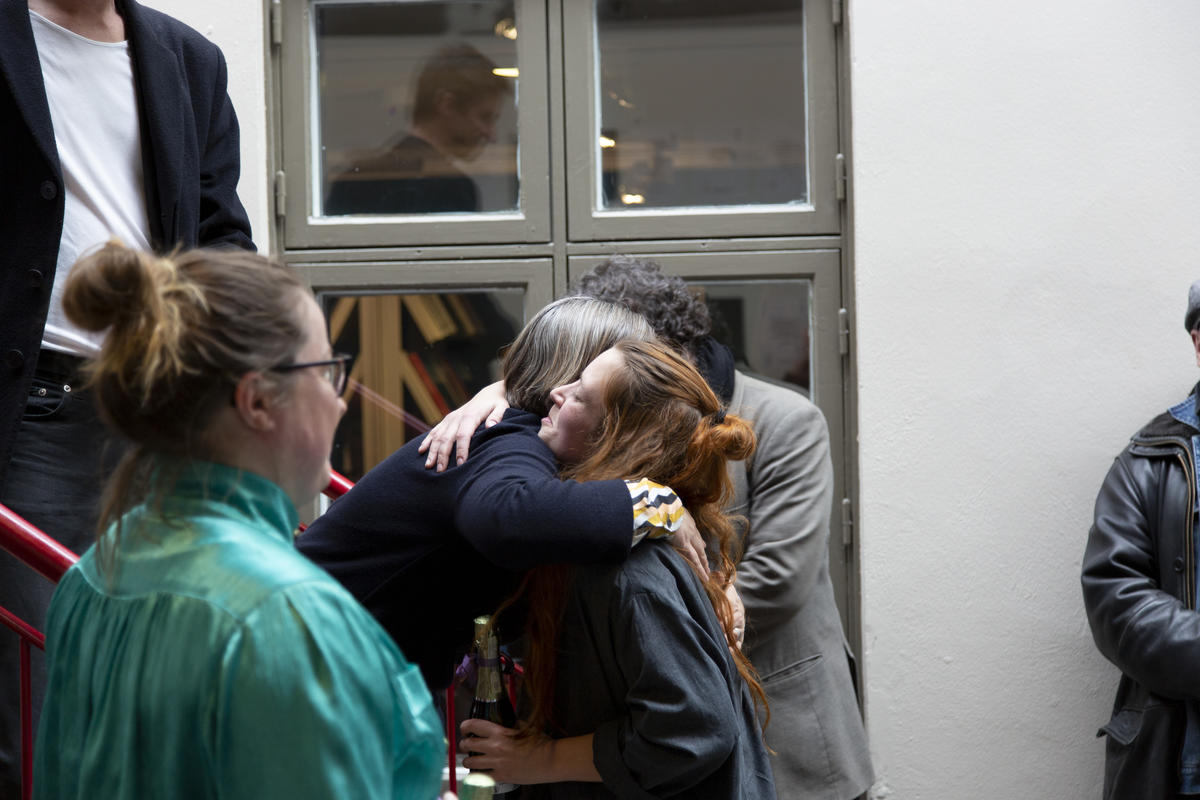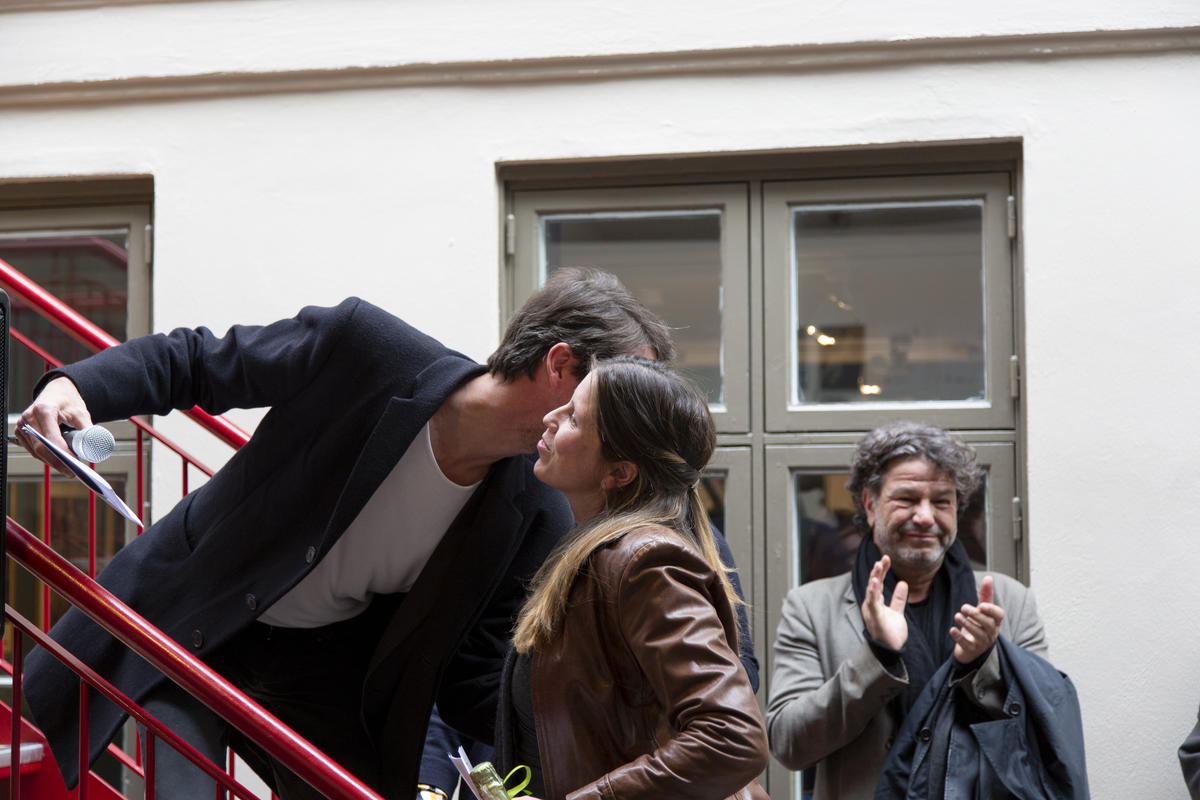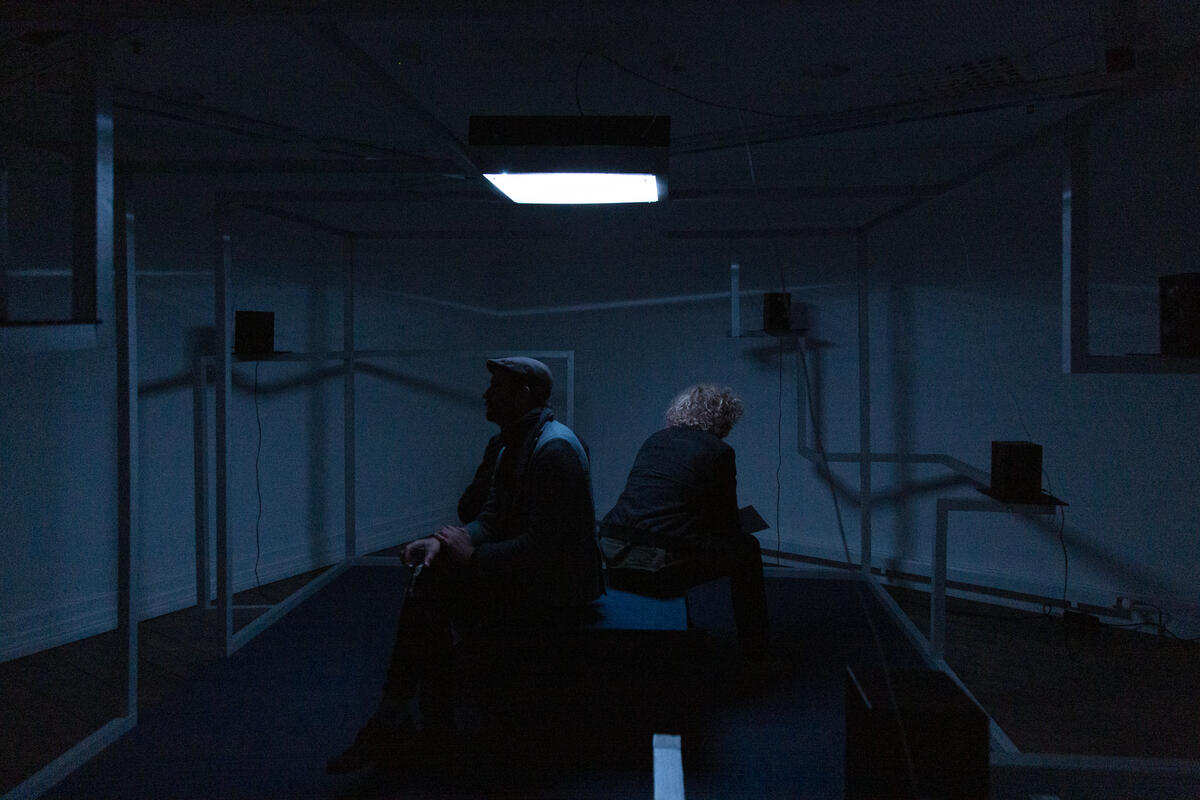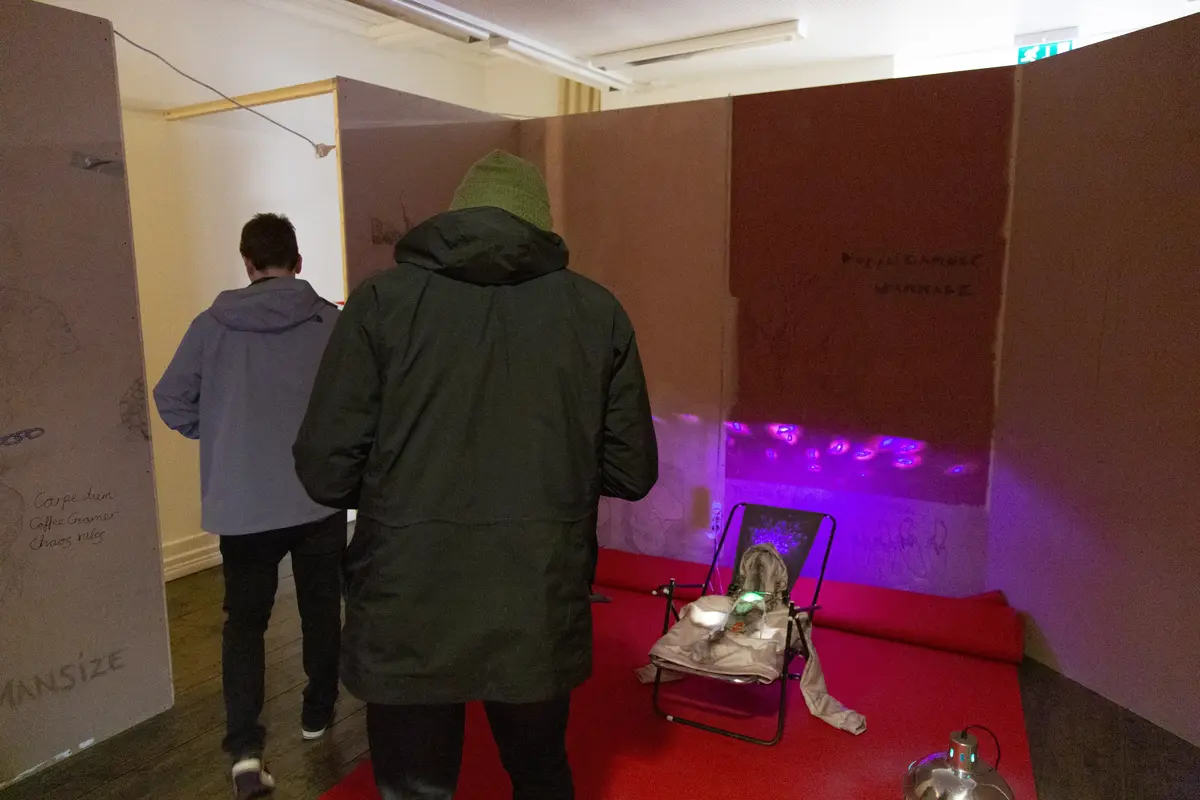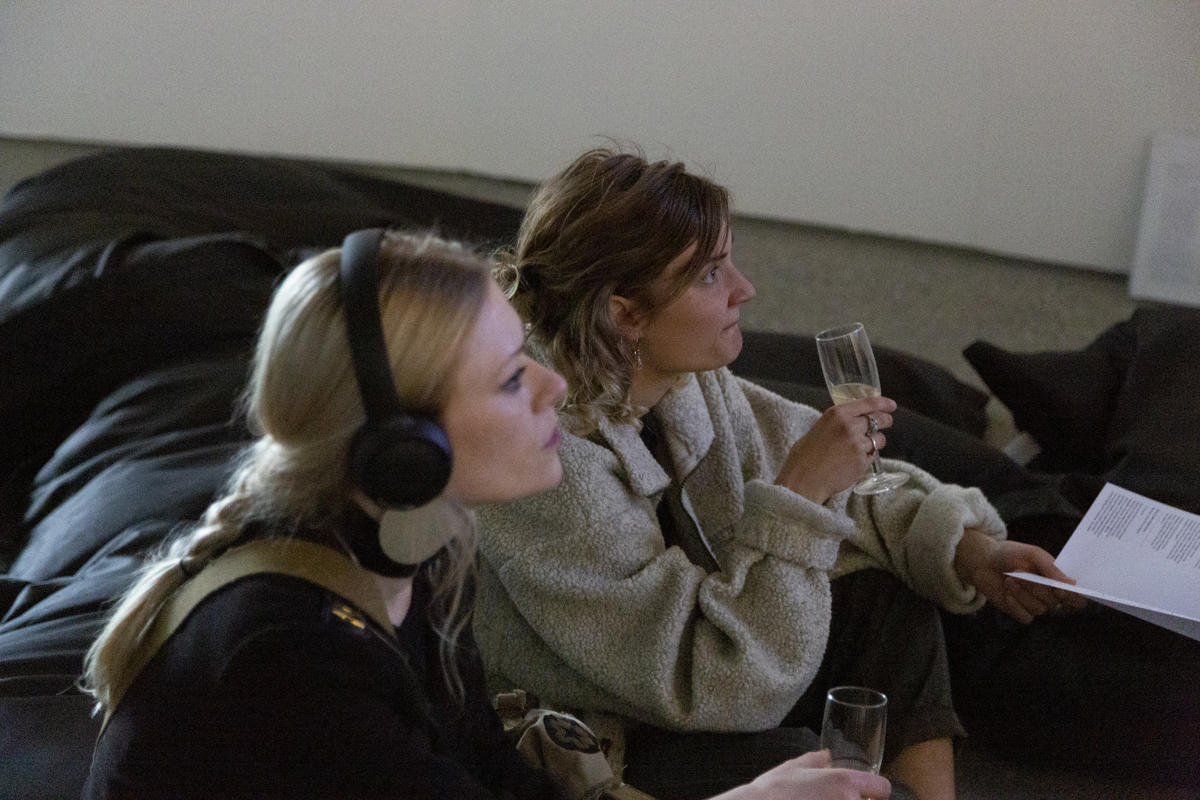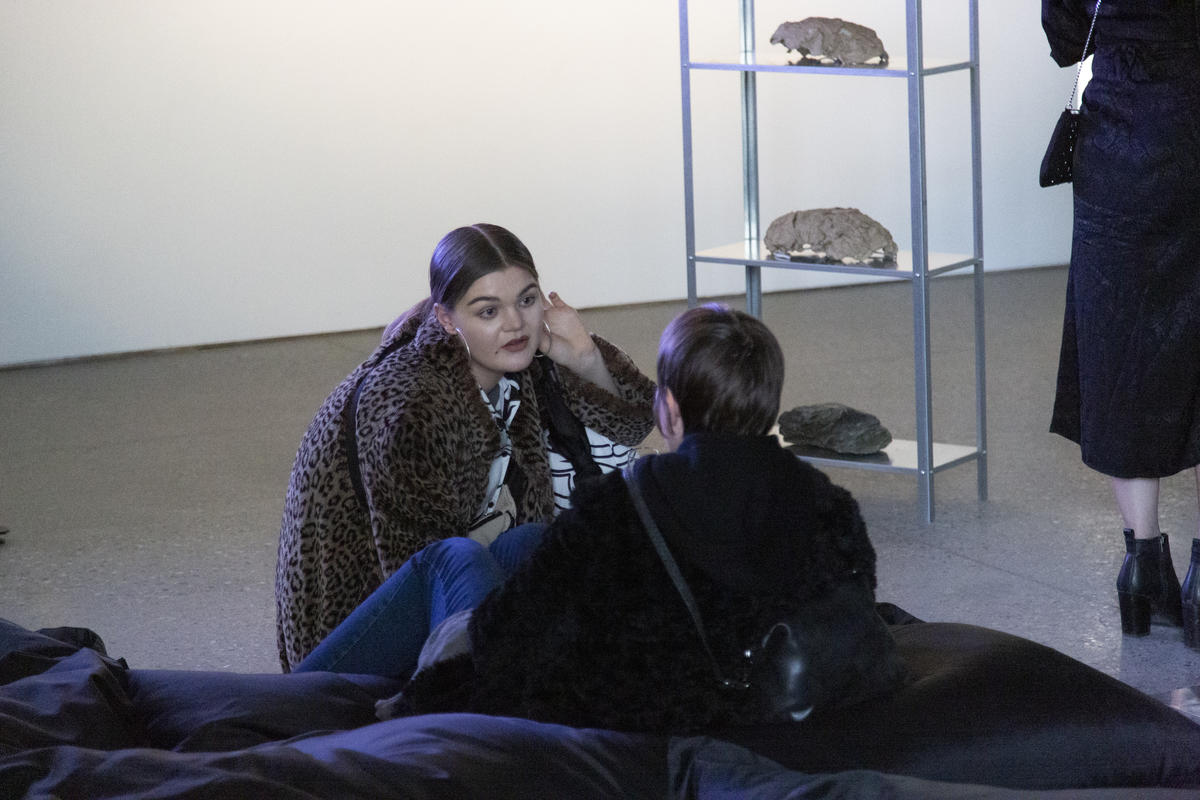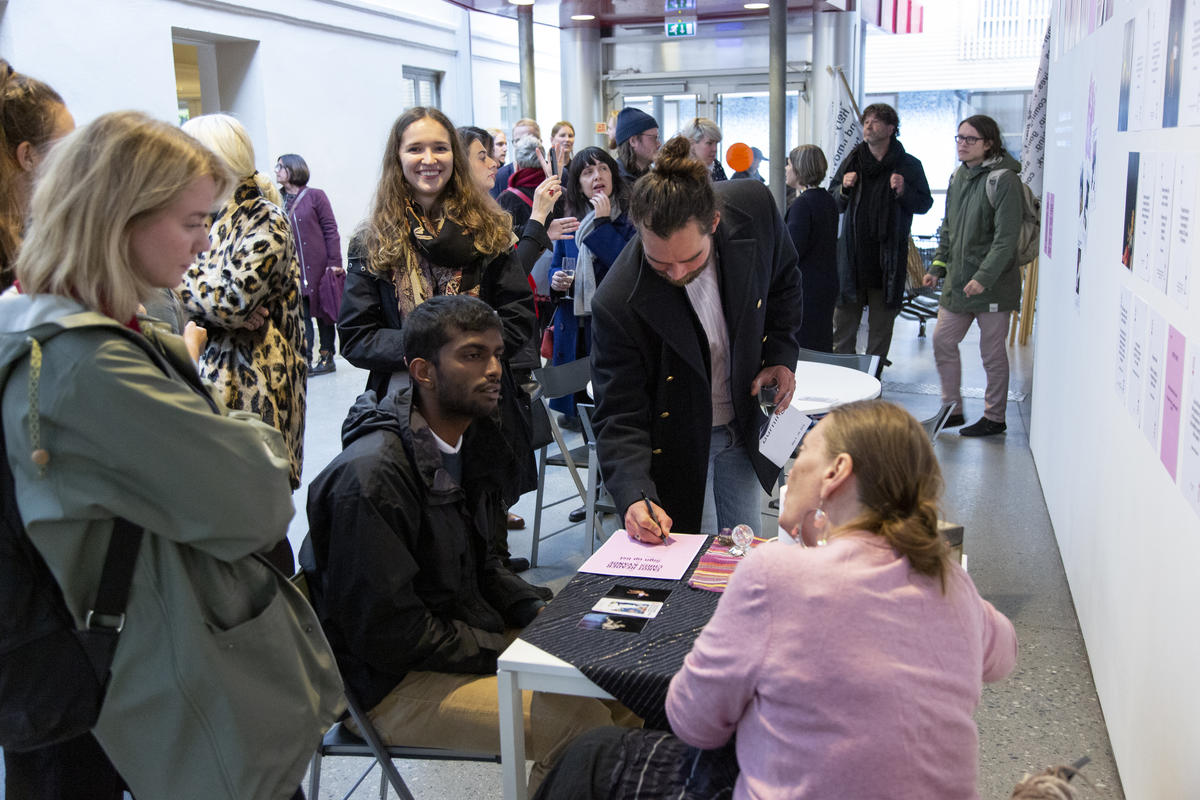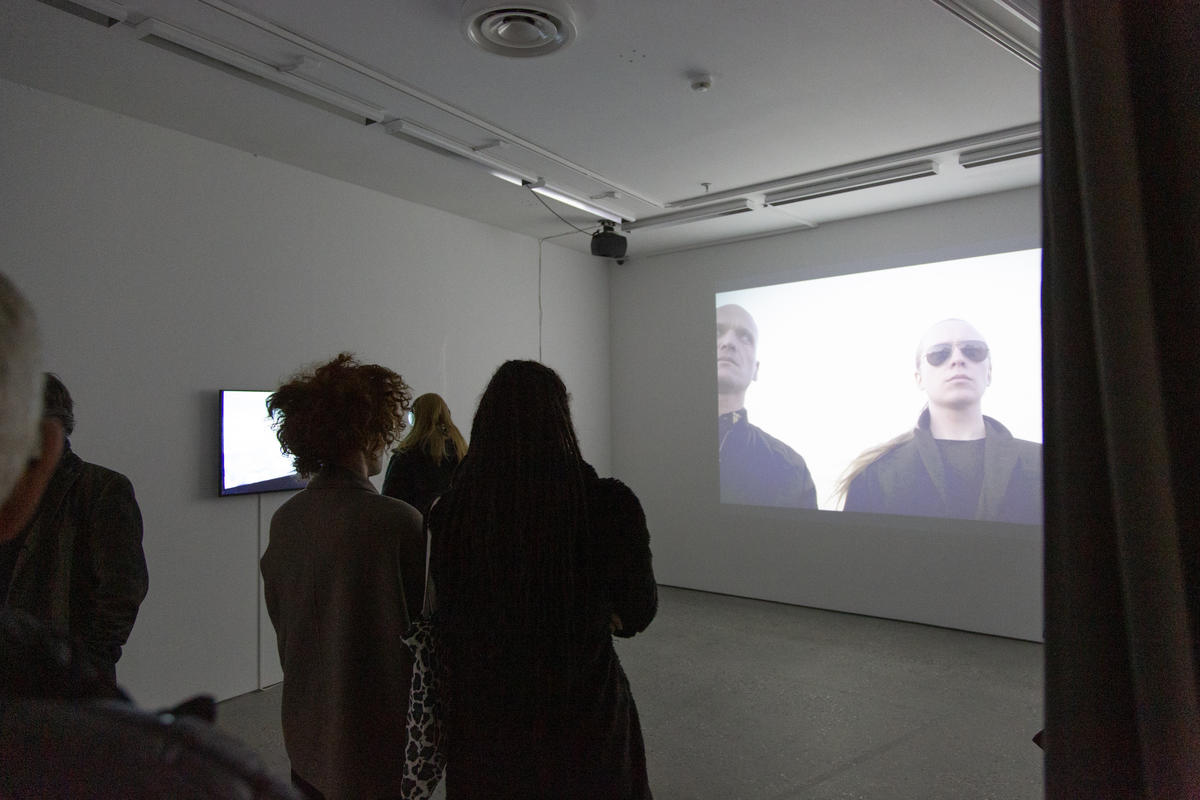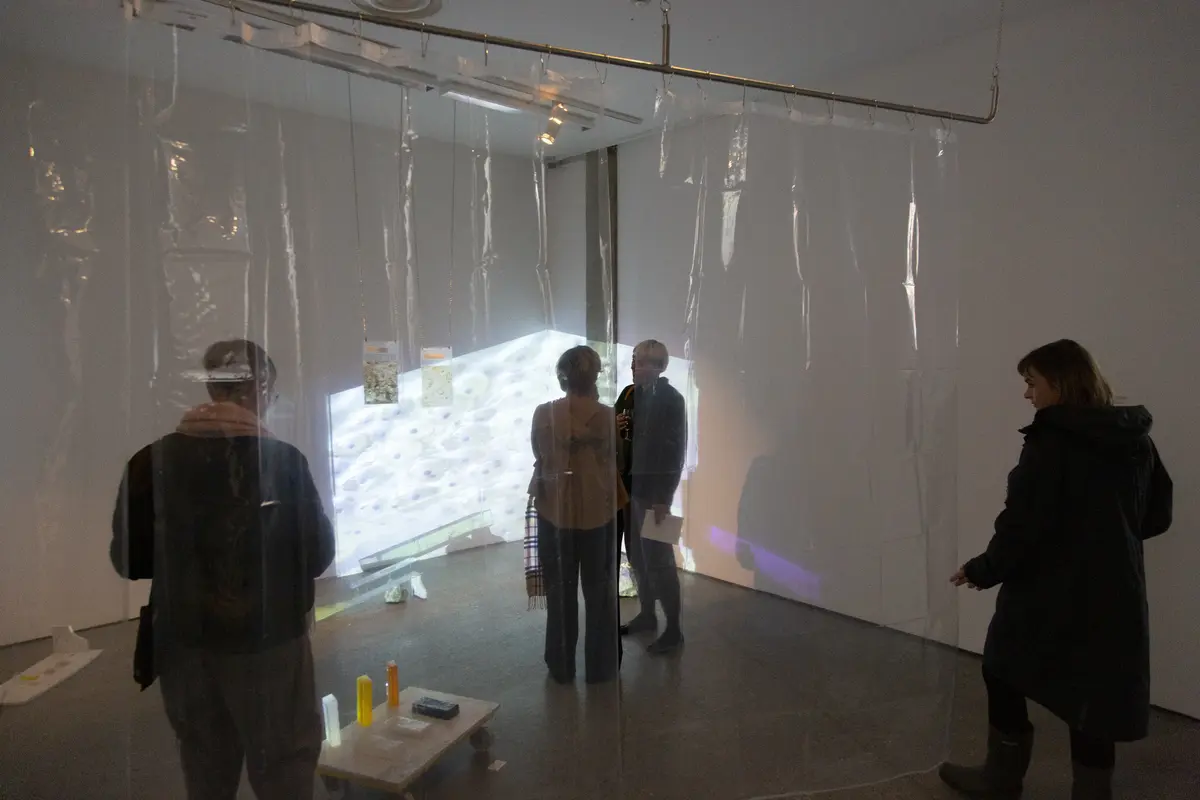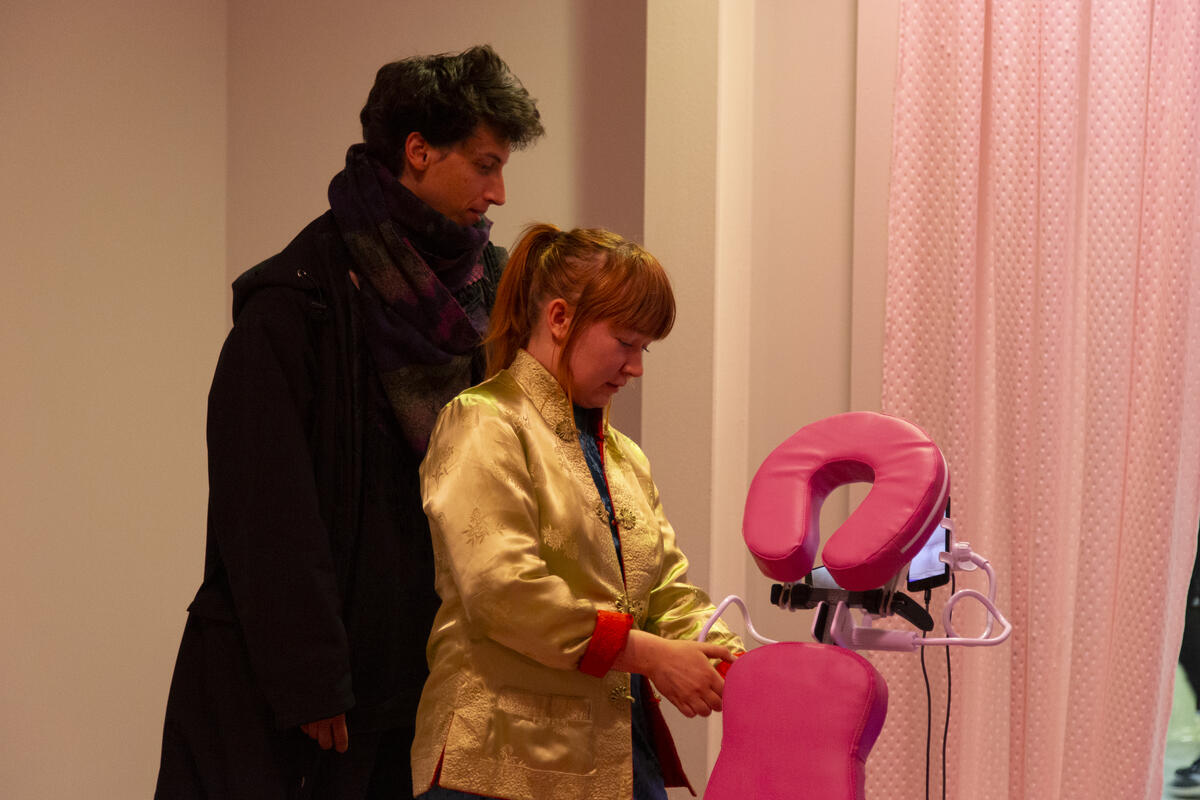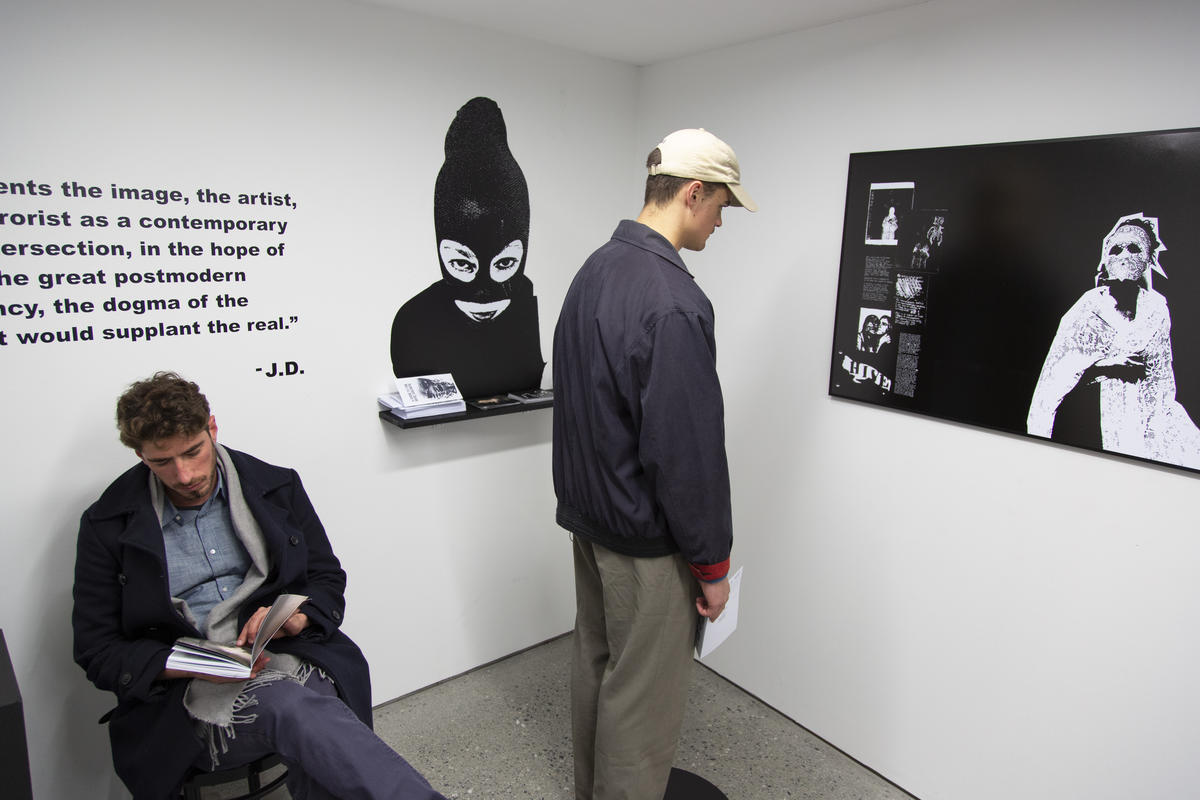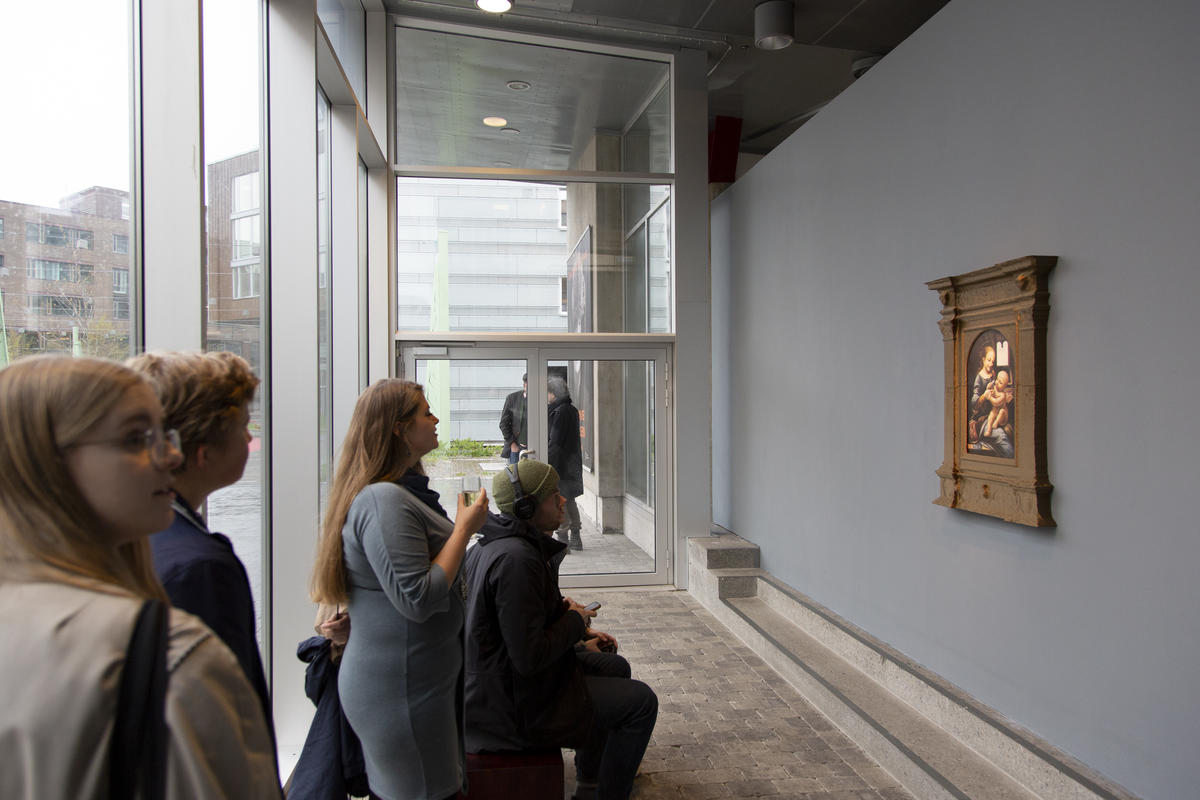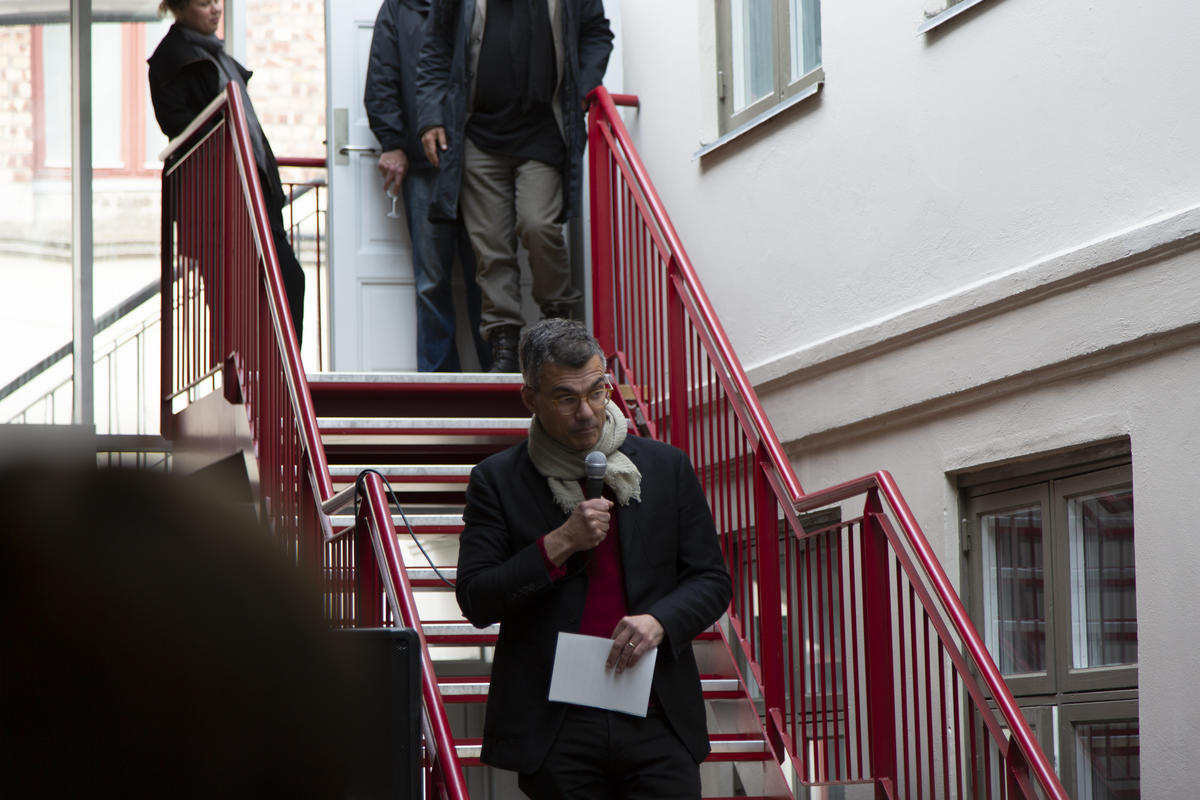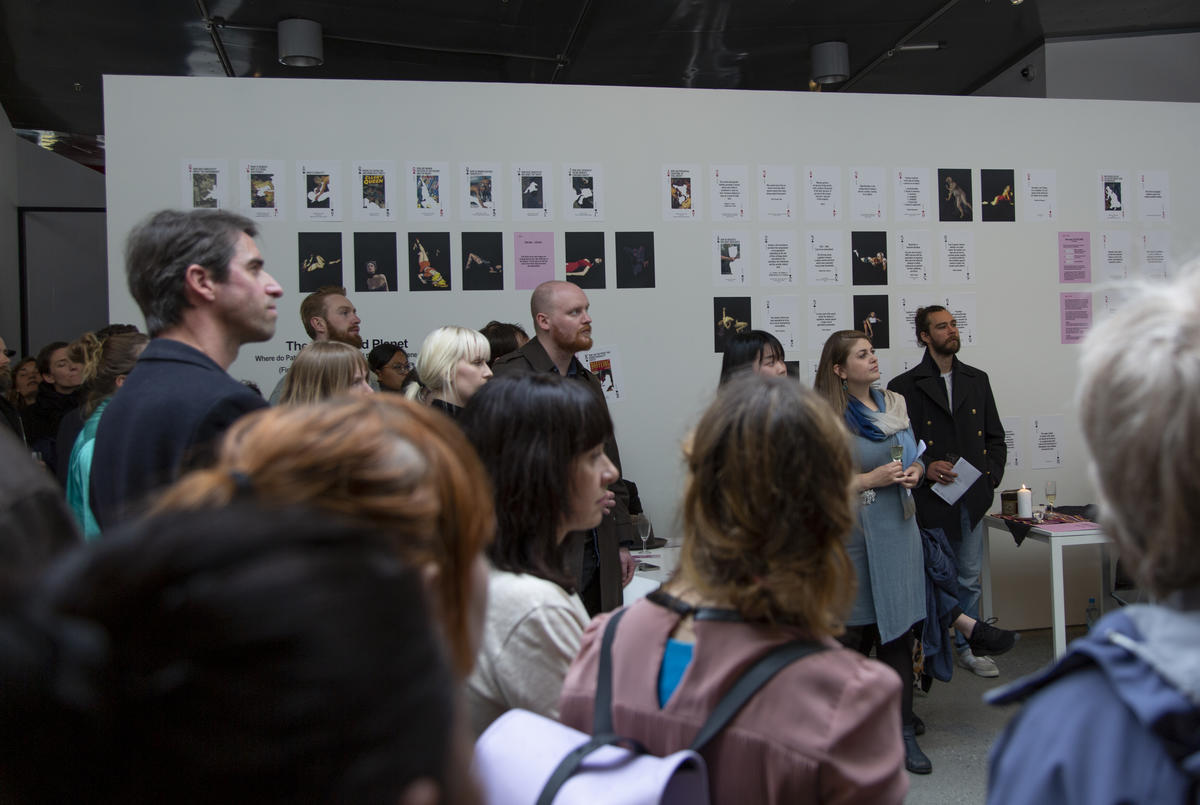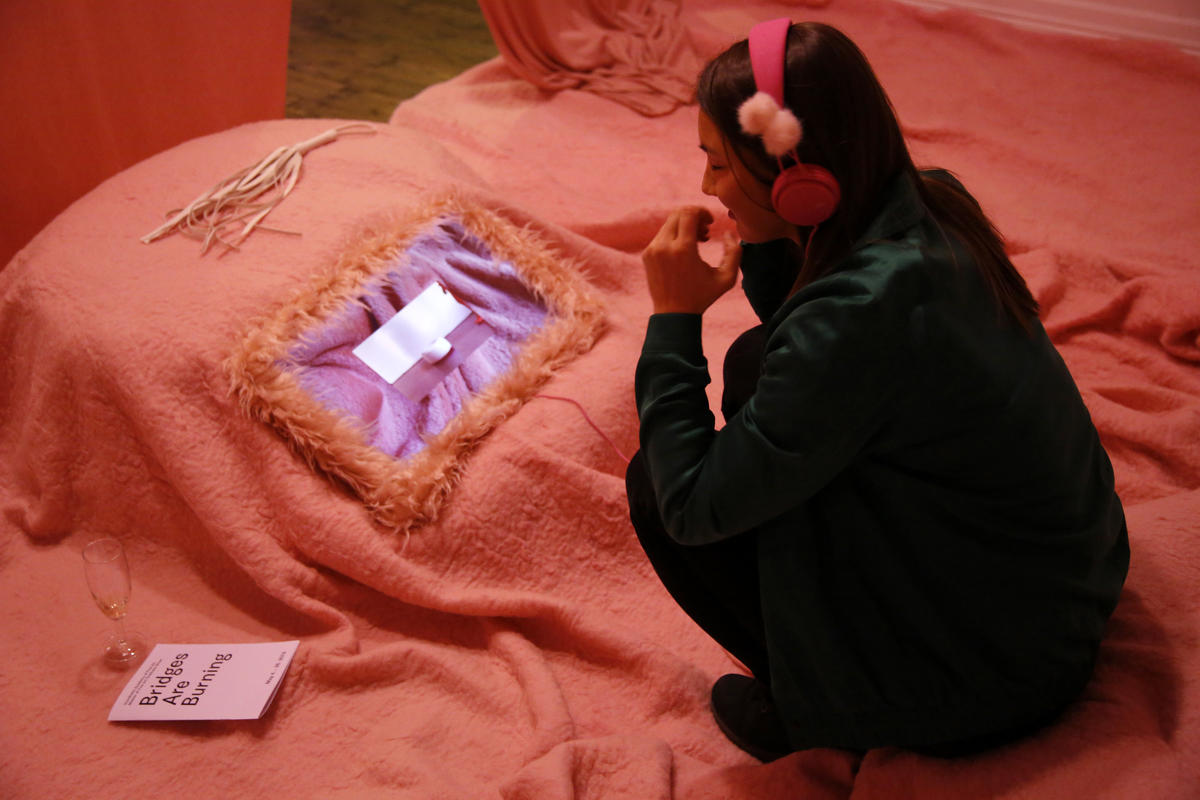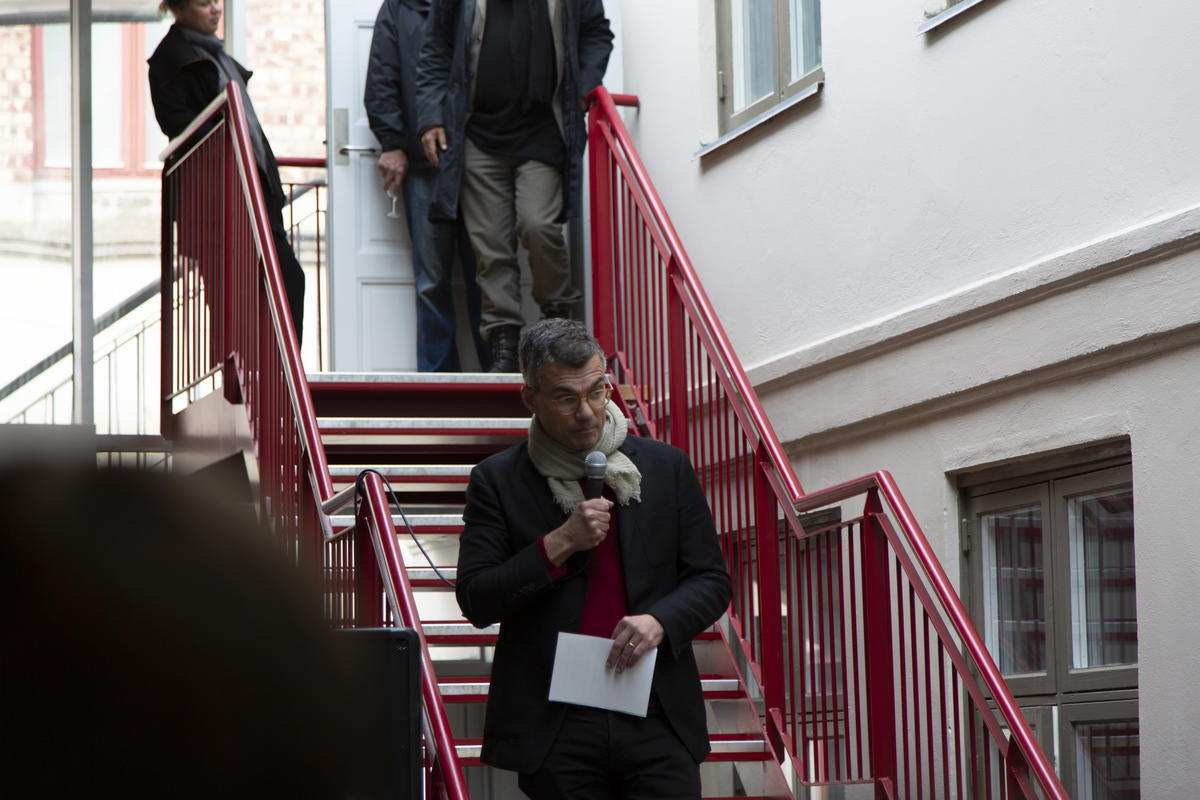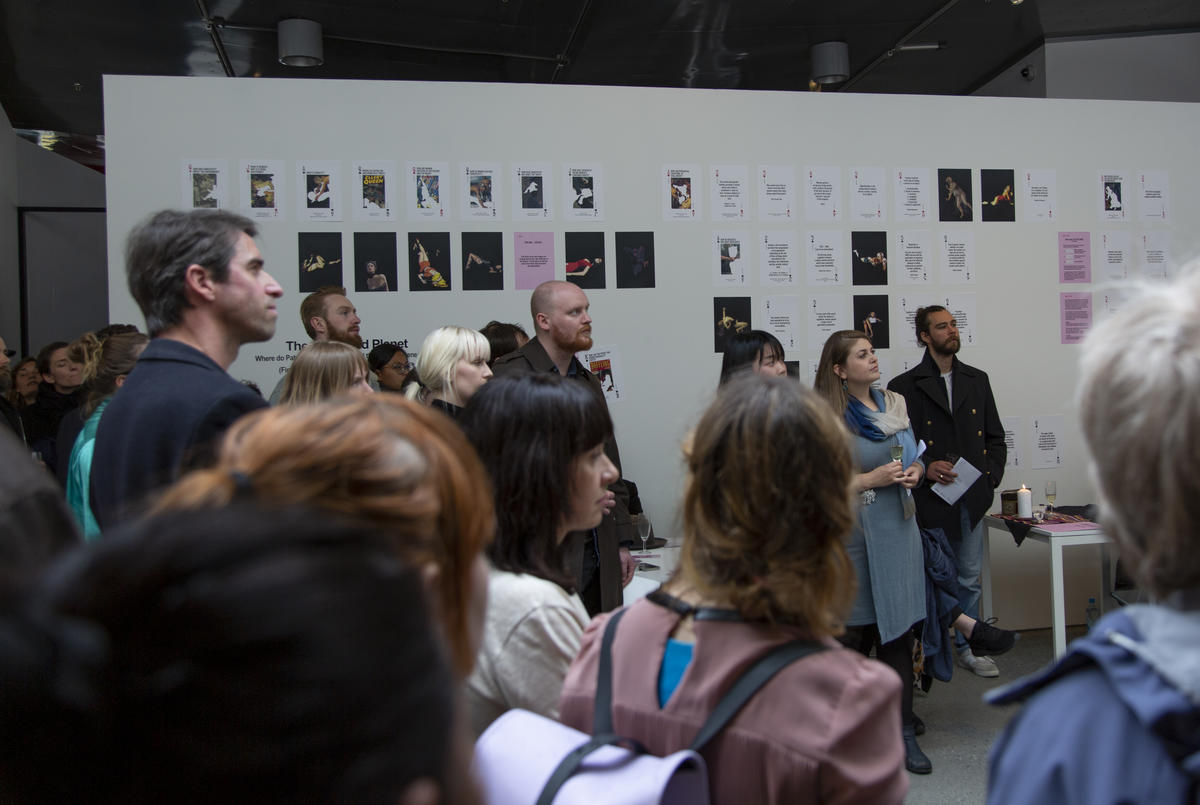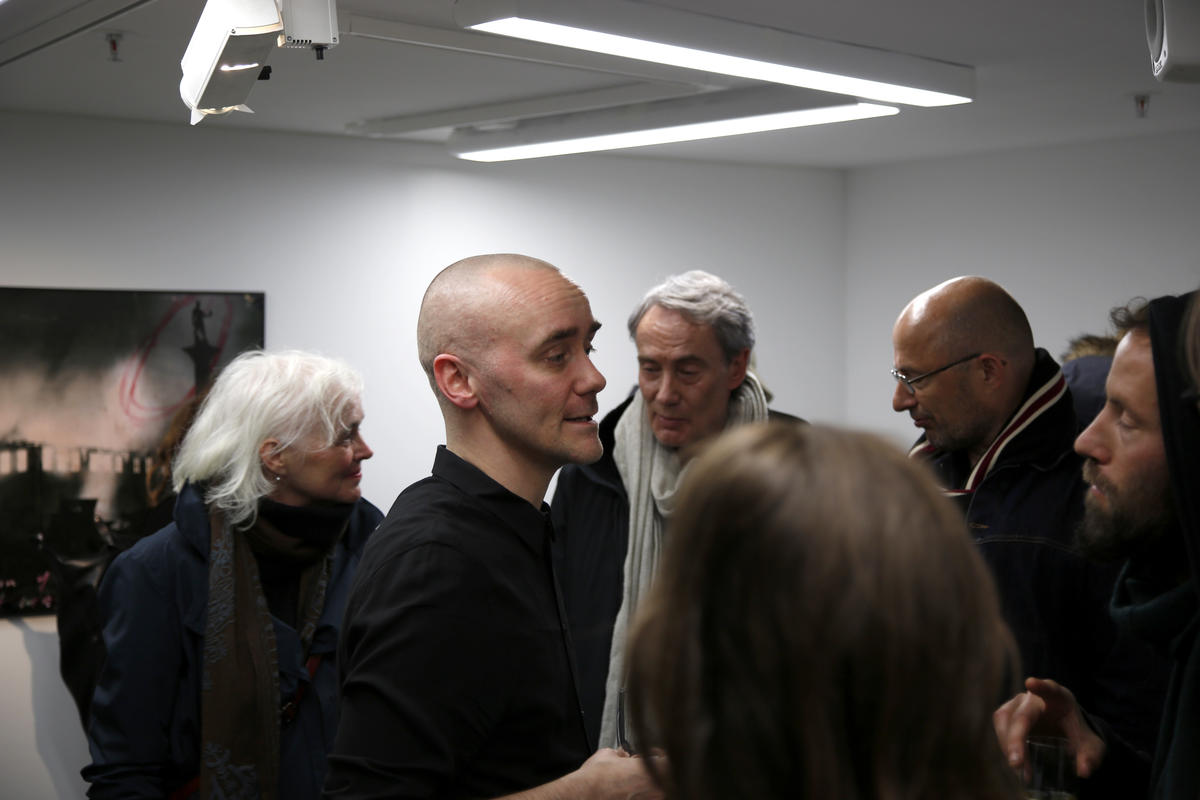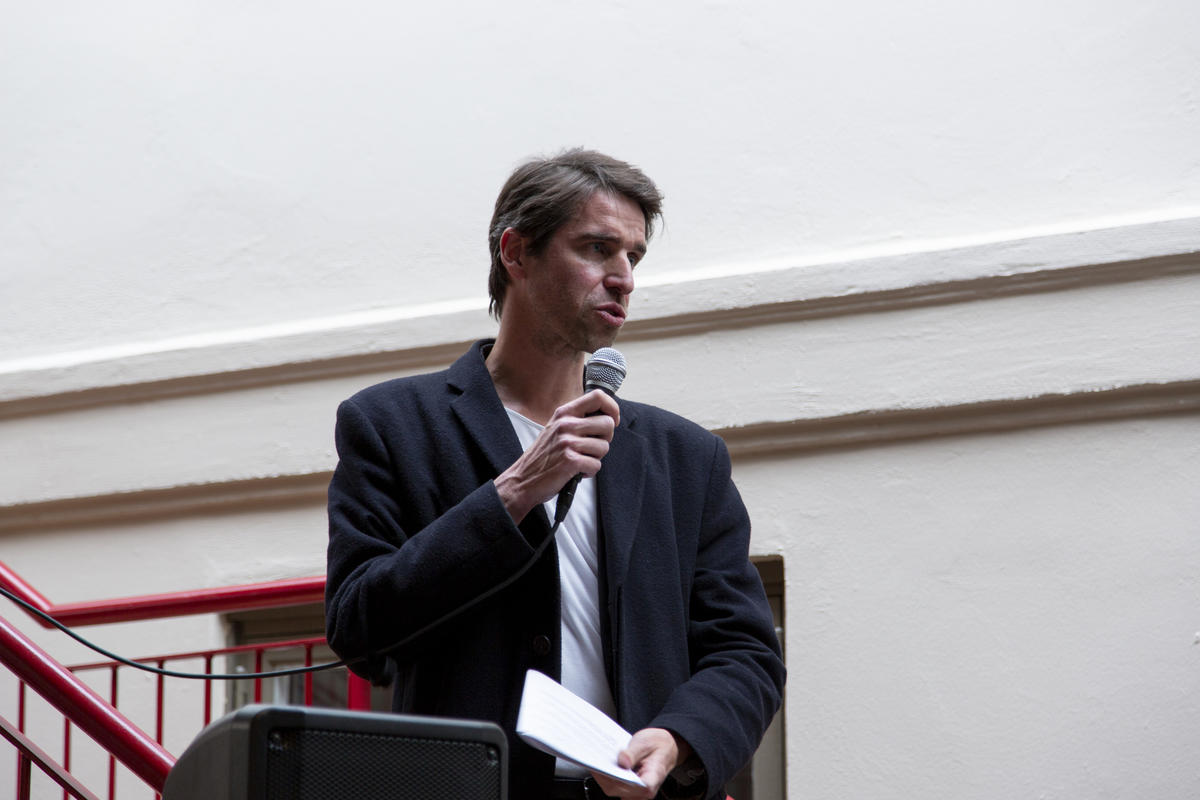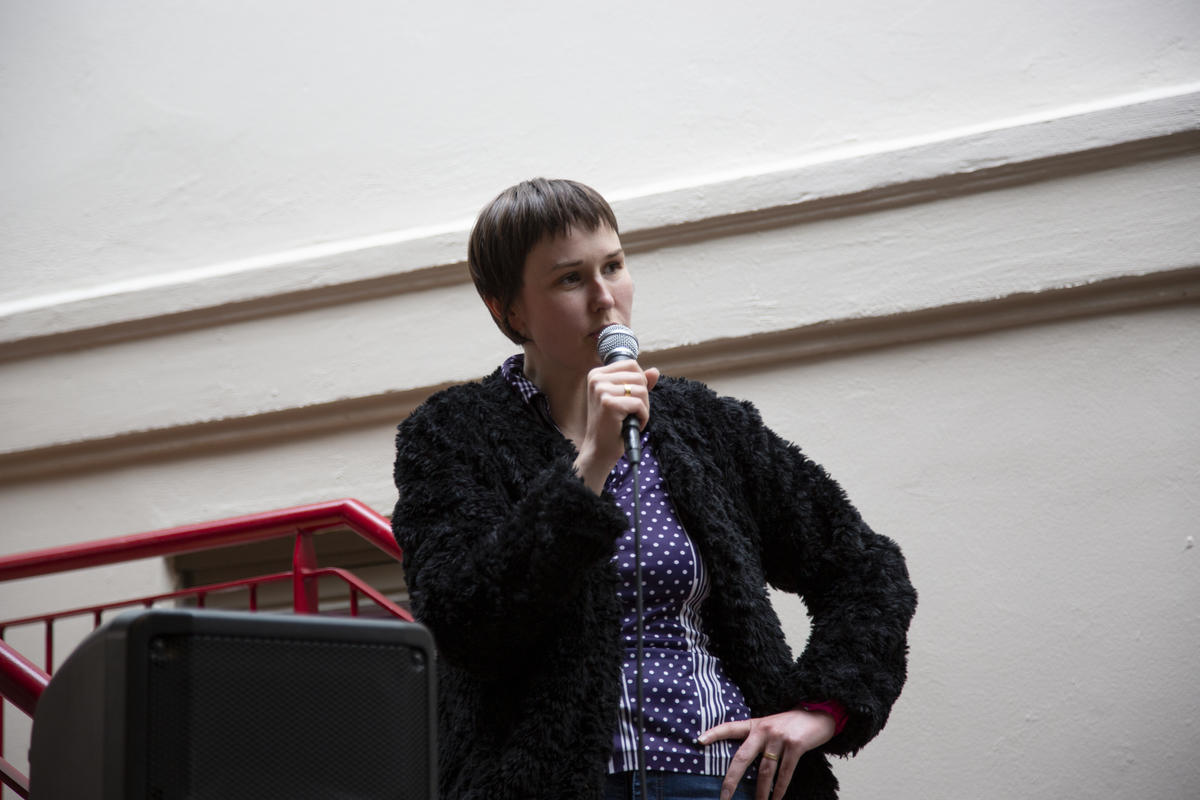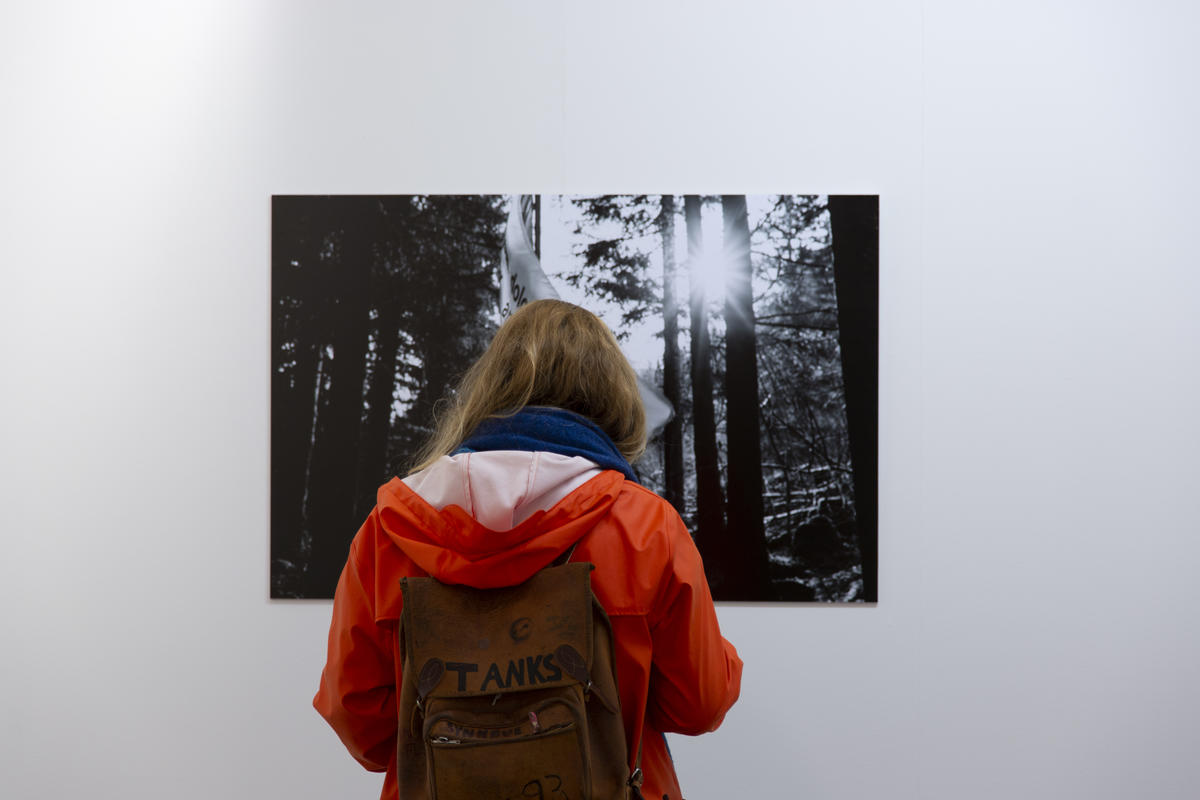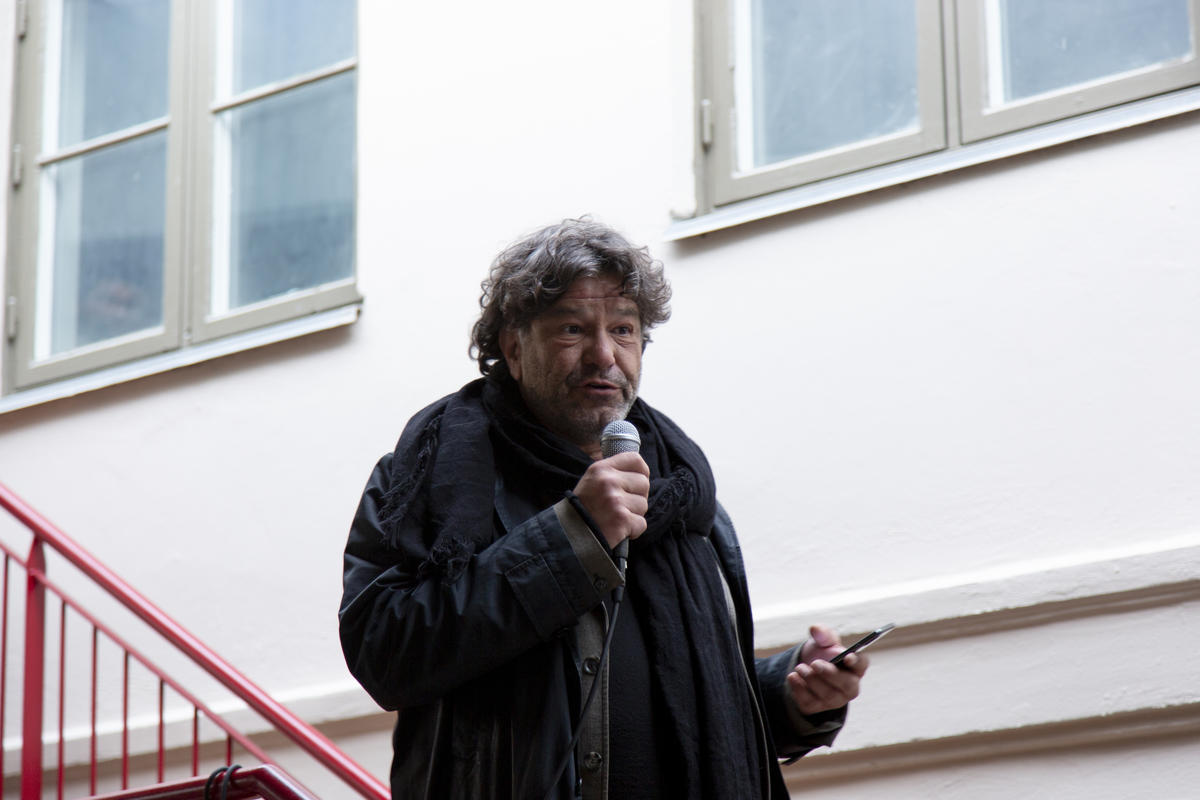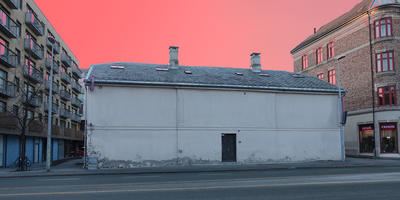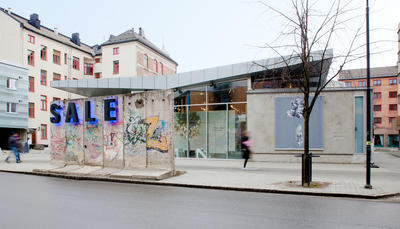Bridges Are Burning presents 12 international artists graduating from Trondheim Academy of Fine Art (KiT) at Norwegian University of Science and Technology (NTNU). The show is the result of two years of thinking and practising artistic research with a focus on the creation of new pasts, presents and futures. In a time of political polarization and burnt bridges, how can we reflect afresh upon the act of exhibiting models for the future whilst still intervening in our divided present and contested past?
The show invites the audience to travel with us, across boundaries, as we seek to build new pathways and explore unknown topologies through the media of installation, video, sound, text and site-specific intervention. The artists question the power of narratives, knowledge construction, and explore queer spaces and environmental issues.
The exhibition presents works by Jane Pedersen, Kasper Holm, Trude E. Bekk, Letizia Balzi, Martin Palmer, Mika Haykowski, Katherine Butcher, Unnur Andrea Einarsdóttir, Anaclara Talento, Anton Benois, Ana Dunjic and Nanna K. Hougaard.
Photo: Lili Zaneta.
Anaclara Talento Acosta - The conquest of you
From the Project Letters to Sebastian, a memory rehearsal (re) script - (re) stage - (re) enact
The conquest of you
Photo installation and performatic public intervention
Variable measures
Trondheim
2019
In what other ways can memory be thought of for the sake of reconstruction or rehearsal? The possibility of generating a geographical map puts at stake, then, other options, starting, by the territorialization of space. If memory is a map then it is space, and it can be a territory, and if it is territory then, it can be conquered.
In The conquest of you, the territory of memory is the primary political reference in the quest of conquering it, and it is necessary to define it for continuing the struggle or resistance to oblivion.
It is necessary to resist from another territoriality, from a different memory.
Photo: Lili Zaneta.
Trude E. Bekk - LA FJELLA LEVE!
What is a mountain? Is the mountain alive? What happens if you remove an elementary component of the mountain, stand on its neck, twist it, bend it, break it, remove its history and fundamentally change its ability to function?
'LA FJELLA LEVE!' is an investigation into the uneven power-balance between the ongoing development of wind-energy in Trøndelag and the Southsámi reindeer-herders. Critiquing the dirty money-game that results in violating human rights and destroying indigenous land and culture in Norway.
I have collected the stories of the reindeer-herders, and the voices of the wind-turbines. The stories are present, but will anyone be able to read them through the noise? The power giants cast a long shadow but will this mean the stories are forgotten once again?
Thanks to Maja Kristine, Synneve Fjellberg, Laara Dunfjeld and Kræsta Toven, Saemien Sijte and Fosen For Folket, Tovelise Røkke-Olsen and Tom Teulon
Benois Madonna, Hermitage, St.Petersburg, Dec 06, 2018 Image: Ina Hildebrandt. Photo: Lili Zaneta.
Anton Benois - Distant Relatives
Distant Relatives explores precarious familial connections, processes of dispossession, displacement and disassociation and the meanings of provenance in the digital space, where larger-than-life family idols are remade via internet shopping iconoclastic in nature. When historical speaking objects speak to us, should we listen?
In collaboration with Martin Steinert, PhD and Sampsa Kohtala, PhD Candidate of Troll Labs at NTNU, the opulent frame that houses a familial ghost is simulated via 3D printing that uses internet-found imagery as source material, stitched together by AI algorithm. A massive Thank You to their efforts must be stated here.
The project received official approval from The State Hermitage Museum, St. Petersburg, Russian Federation. This approval wasn’t asked for, but nevertheless, its there.
Balzi, Leticia (2019). The Gendered Planet Artistic Research Project: Not my King toolkit [Deck of playing cards and ludic space installation].
Letizia Balzi - The Gendered Planet: The Political Aesthetics of Women’s Bodies in Neoliberal Western Visual Culture
The Gendered Planet is an artistic research project, which analyses and deconstructs the commodification of women’s bodies in Western neoliberal visual culture in which oppressive identities of women have been historically engineered.
Katherine Butcher, Soft Imperial Eyes: The Eight Strands of Afghanistan, video, colour, 01:53m, 2019. Photo: Lili Zaneta.
Katherine Butcher - Soft Imperial Eyes
Soft Imperial Eyes uses the frozen military register to move beyond the myth of peace enforcement by reconstructing - in a non-mythical way – the direct speech acts for future sites of occupation. The soldier stands in the foreign place, reciting the rehearsed view of the other, in a heroic quest for peace.
Ana Dunjic, 2018. Photo: Lili Zanita
Ana Dunjic - Memory Crystal
Photo: Lili Zanita.
Kasper Holm - Critical Materials
In this short film, we are introduced to the inheritors of the Earth: Antimony, Fluorspar, and Bismuth. Before the event they were simply the materials needed to produce most of our modern technology, now they are godlike entities roaming the interior of the planet. Exploring the terrestrial as a site for communion with our basest desires and deepest regrets, ‘Critical Materials’ takes us through misty snow-clad valleys, derelict caves and underground pools to show us where they live.
‘Critical Materials’ is also the story of future scientist Dr. Laula and her research trip to a supposedly abandoned Earth where a community of survivors are worshipping the materials as mythological objects.
Photo: Lili Zanita.
Nanna K. Hougaard / Department of X
What does it mean to see? What does it mean to know?
Photo: Lili Zanita.
Unnur Andrea Einarsdóttir - Fiat Indicium
Fiat Indicium
Video Series/ Installation (12 mins)
Fiat Indicium is a scenic narrative focusing on the utopian and dystopian manifestations of our digital present. It visualizes our intimate and immersive relationship with devices as agents of seduction, addiction and emotional mediation. Networks as an apparatus of power and dominion- creating dependence, cloaking complexity and commodifying personal information. Fragments of our digital selves are now distributed around the world on servers and in data centres owned and managed by unknown entities. The work investigates the faith and trust we have in our technologies to offer us solutions, safety, connection and even longevity through Transhumanistic agendas. It draws parallels between the power structures inherent in global networks and those found within our religious institutions, as the gatekeepers of information and generators of truth. The supernatural once considered the realm of sacred is now provided for in the profane, the technologies we create. Have we come to experience technology and intelligent systems as a new form of higher power?
The Splinter in Your Eye. Archive photo, 1942/1979. [Original: Alf Schrøder/Riksantikvaren]
Martin Palmer - J.D. / HIVE 1979–1981: Art & Terror in Trondheim
We may suggest a judgement on our material – and sharpen the theme – by imagining another kind of artistic desire that would seek not to transgress and transform but to pass happily over to the margins, the better to relinquish all ambitions for radical social change. To rest with marginality and the understanding that the world will not be altered by artistic acts. To rest with the minimal hope that thanks to the artists, a different way of seeing might be assumed in local pockets of culture, might even make a little change here and there. It is the sort of artistic commitment that doesn’t eventuate in failure and despair because such desire is a commitment to permanent exile and renunciation of political ambition. Desire for the margins is at peace with its minority status, even as the secular world abandons and scorns it, leaving it free to create beautiful, challenging things. This is not the aim of the transgressive artist, who wants so much more.
- J.D., “The Judgement”, HIVE Issue II, 1980
J.D. / HIVE 1979–1981: Art & Terror in Trondheim is an archive exhibition and publication detailing the workings of the obscure artist collective HIVE, which according to dated material were active in Trondheim in the late 1970s and early 1980s. Their work revolved around a peculiar exposition of the sublime experience, connecting the idea to acts of political terrorism. The project is also concerned with archivalism and the archaeology of knowledge (cf. Foucault), printed matter in the post-digital age, truth production and museology.
Photo: Lili Zanita.
Jane Pedersen - Tableaux Mort
- Abstract from thesis (Tableaux mort 2) -
The void, the abyss.
My black panther. Teeth reflecting light.
Man sized bump. A sentiment of mayhem.
Murderous amputations of the domestic.
Toasted remains of a home and its inhabitants.
She knows that the wheel that squeaks gets the oil and she likes her young guns a lot, and their sugar. She’s packing heat. Eating cake. Gets the bang for the buck. Code eleven. Fresh piece of gum. She got a hot bath ready for you, boy. You’ve been on your feet (and her mind) all day.
Salts, tropical oils. A whole lot of candles, potpourri, just waiting for you, boy.
……. a flickering imitation of a shape, a soulless vague contour, a whiff of human, a whiff of murder.
Your eyes in hers separated by water, above, beneath, until your lungs run empty and the bubbles stop breaking the surface.
Your name tattooed on her knuckles.
Tableaux Mort; a site-specific sound installation exploring quotation practice, gender appropriation, non-male aggression as well the autobiographical (memories as organic, fluid, an archive of senses and recollections, fragments, trauma, desire…) with horror and the gurlesque.
The room raises a flag on behalf of existence on the edge, in the zone, among the outlaws, the notorious, damned and damaged.
It showcases props and samples: true marble and true bling. Gold. Always gold. Paradise hotel. Cuba Caramel. Sculpting. Sampling. Bodies. Into a modern day idealized eclectic redneck freakshow.
(Embracing, owning their position.)
Photo: Lili Zanita.
Mika Claire Haykowsky - Retreat: Rose Room Ritual
(Whispered)
Now come with me on a walk through what you thought were your dreams. Resting in your back muscles is long forgotten trauma. You find things to rub up on, a self-massage, but it seems perverted. Is it wrong to seek healing from inanimate objects, to seek relief from the non-human? You can’t even hug a tree without feeling self-conscious. You resist the temptation because of the social taboo of publicly seeking pleasure from something other than human.
